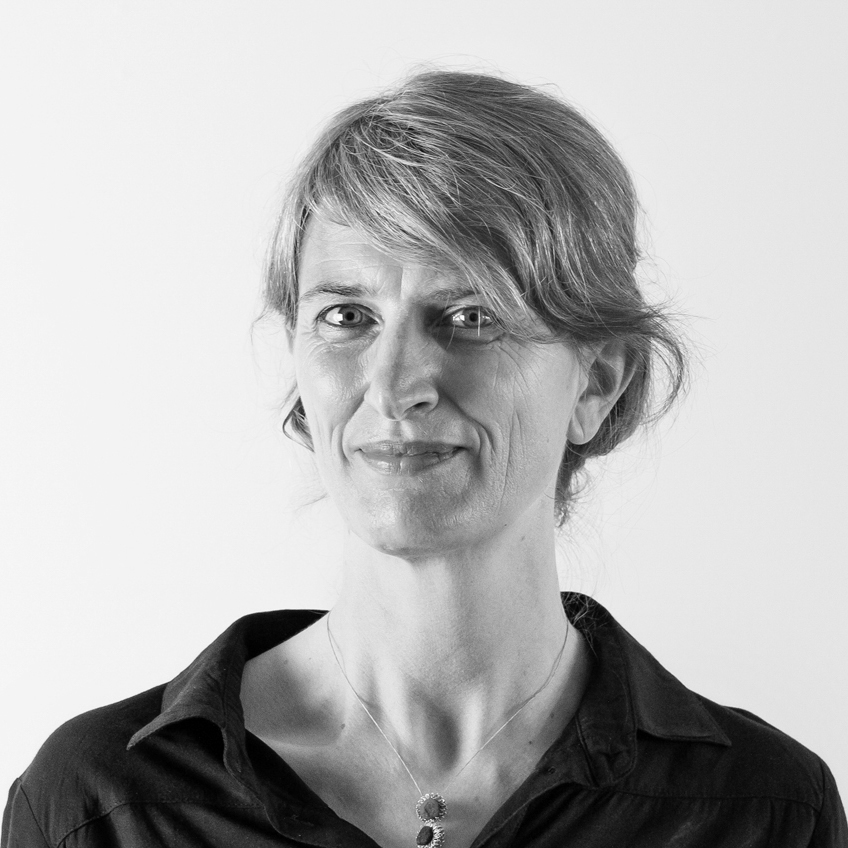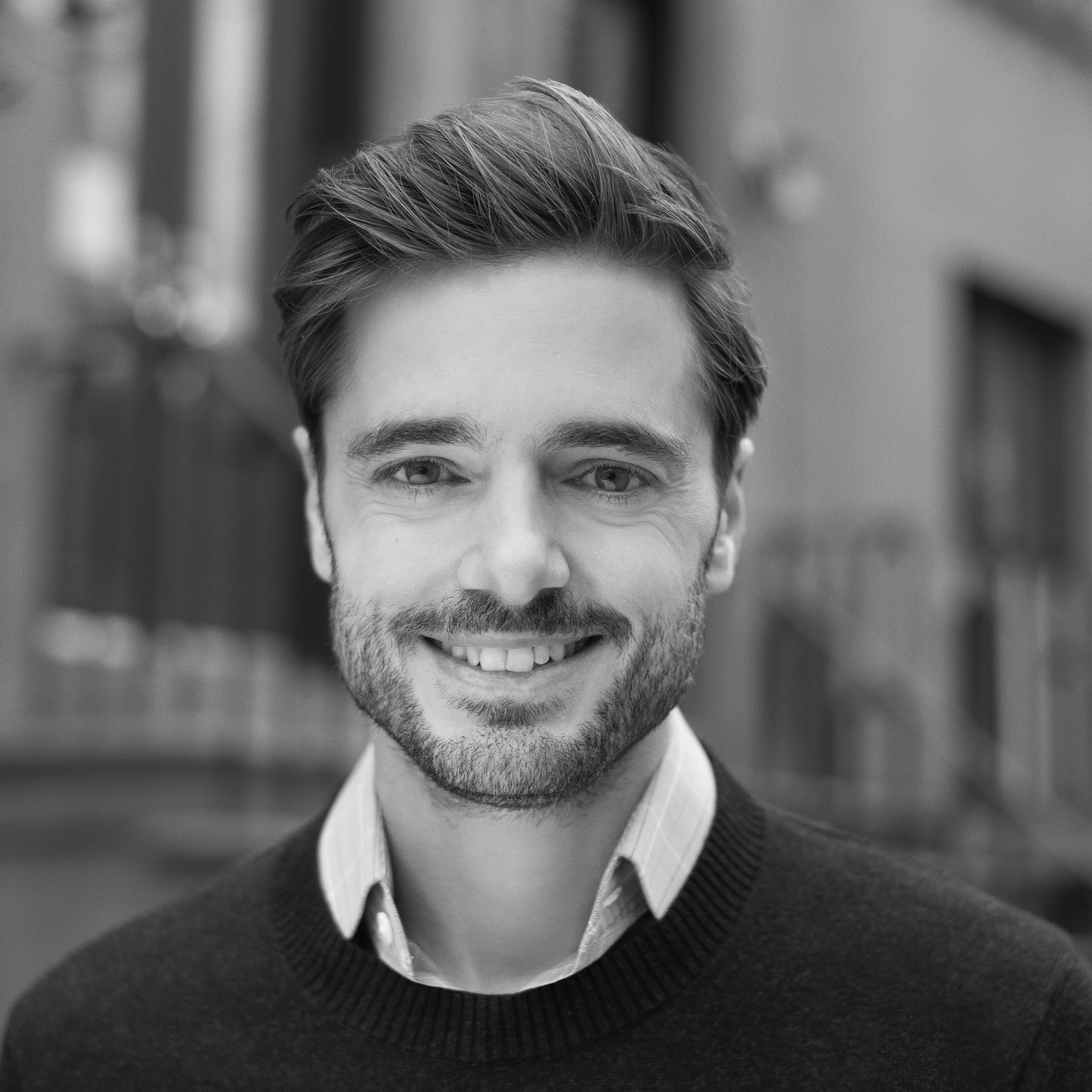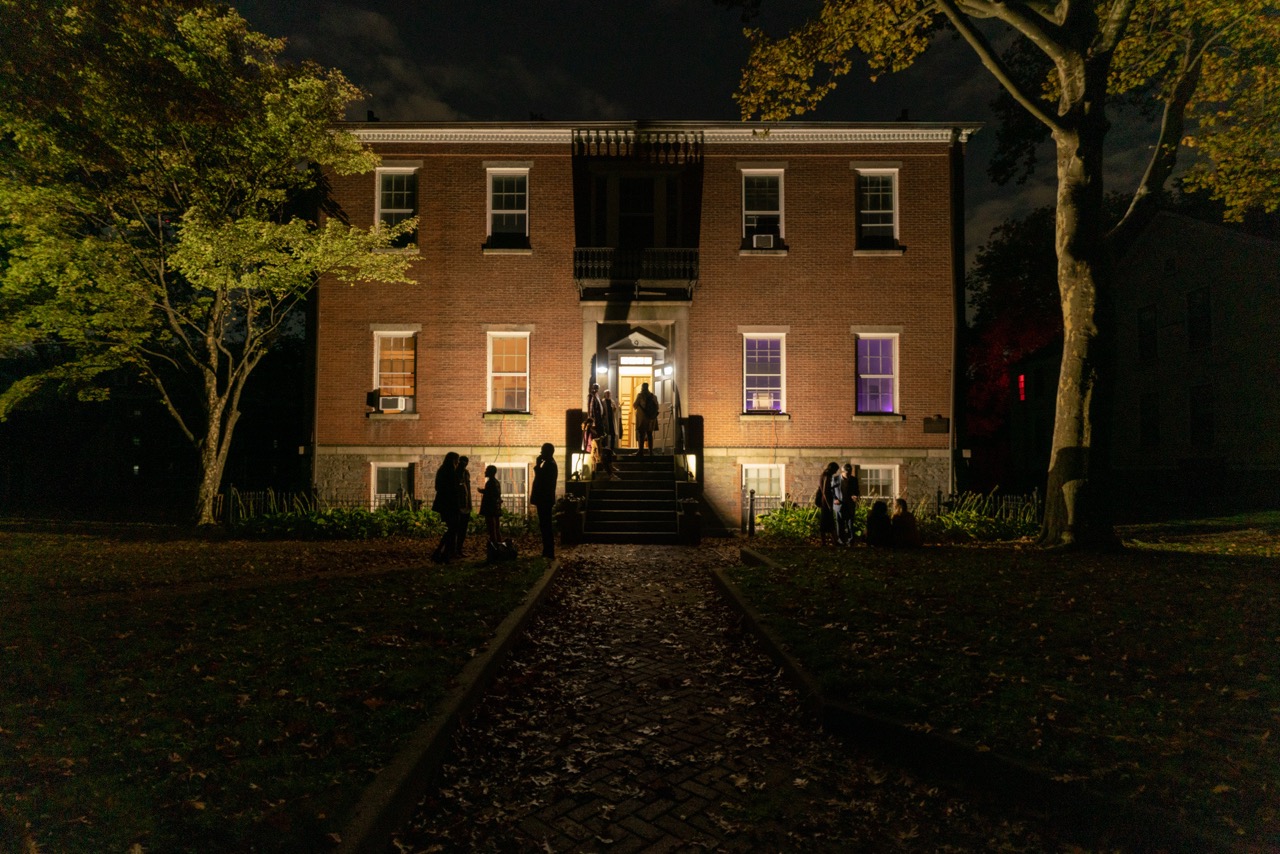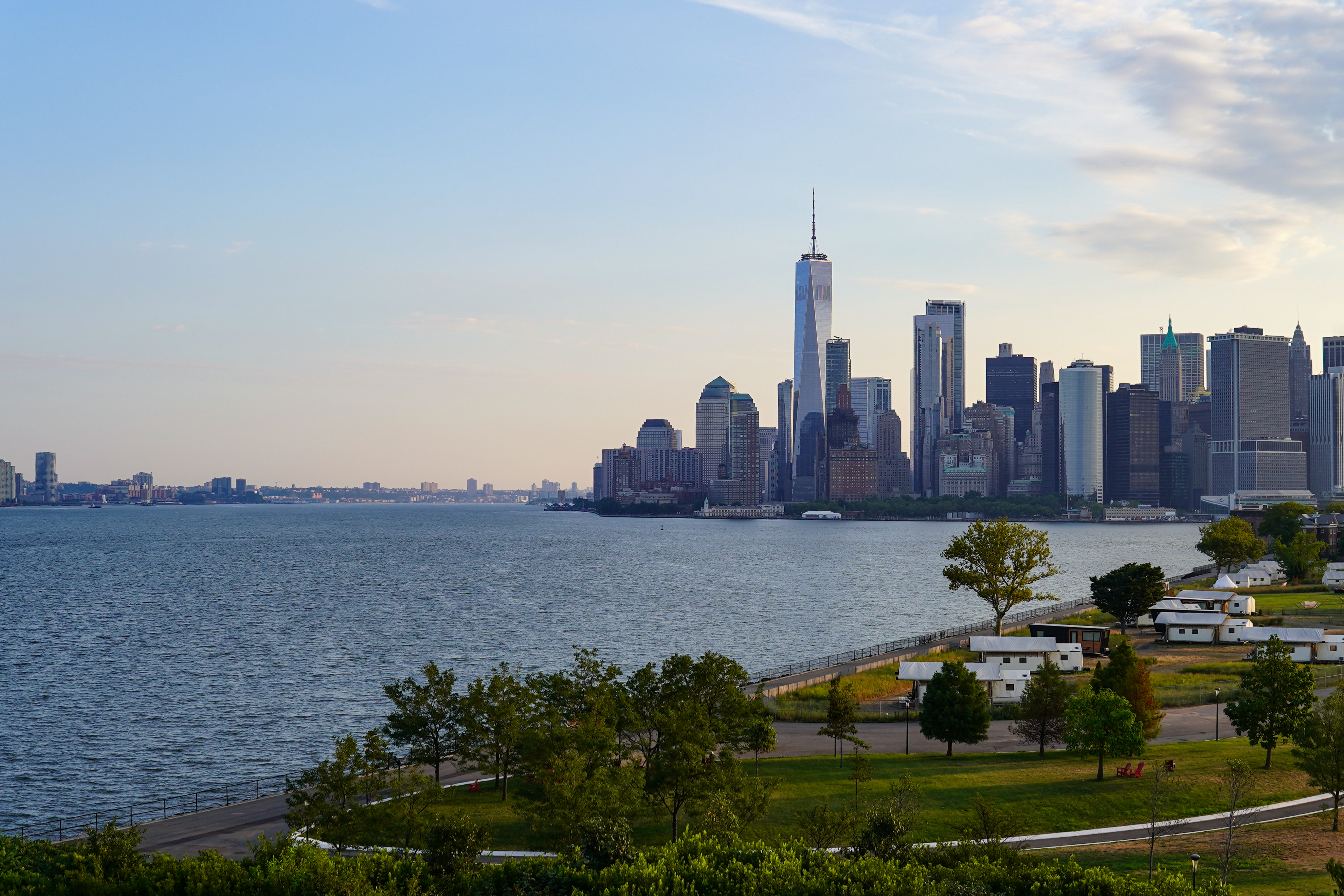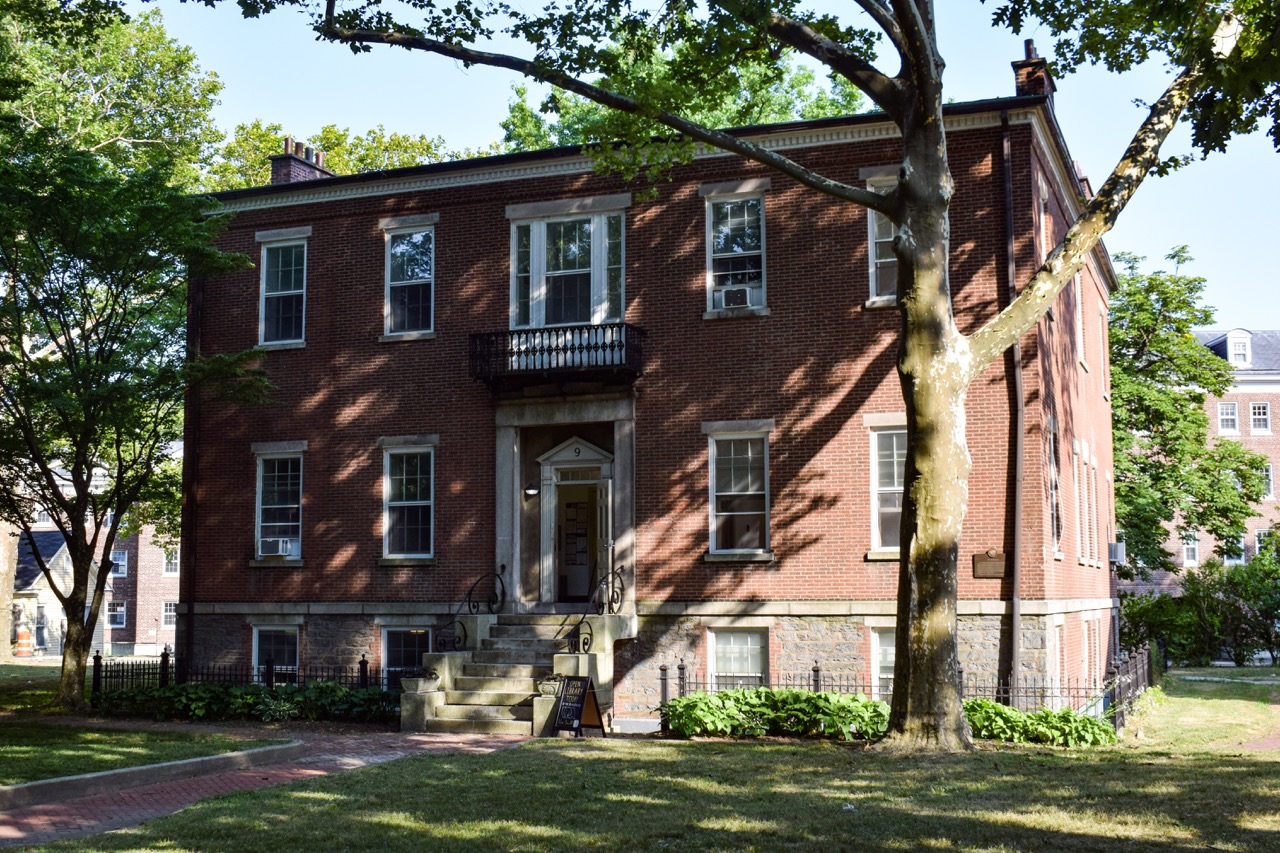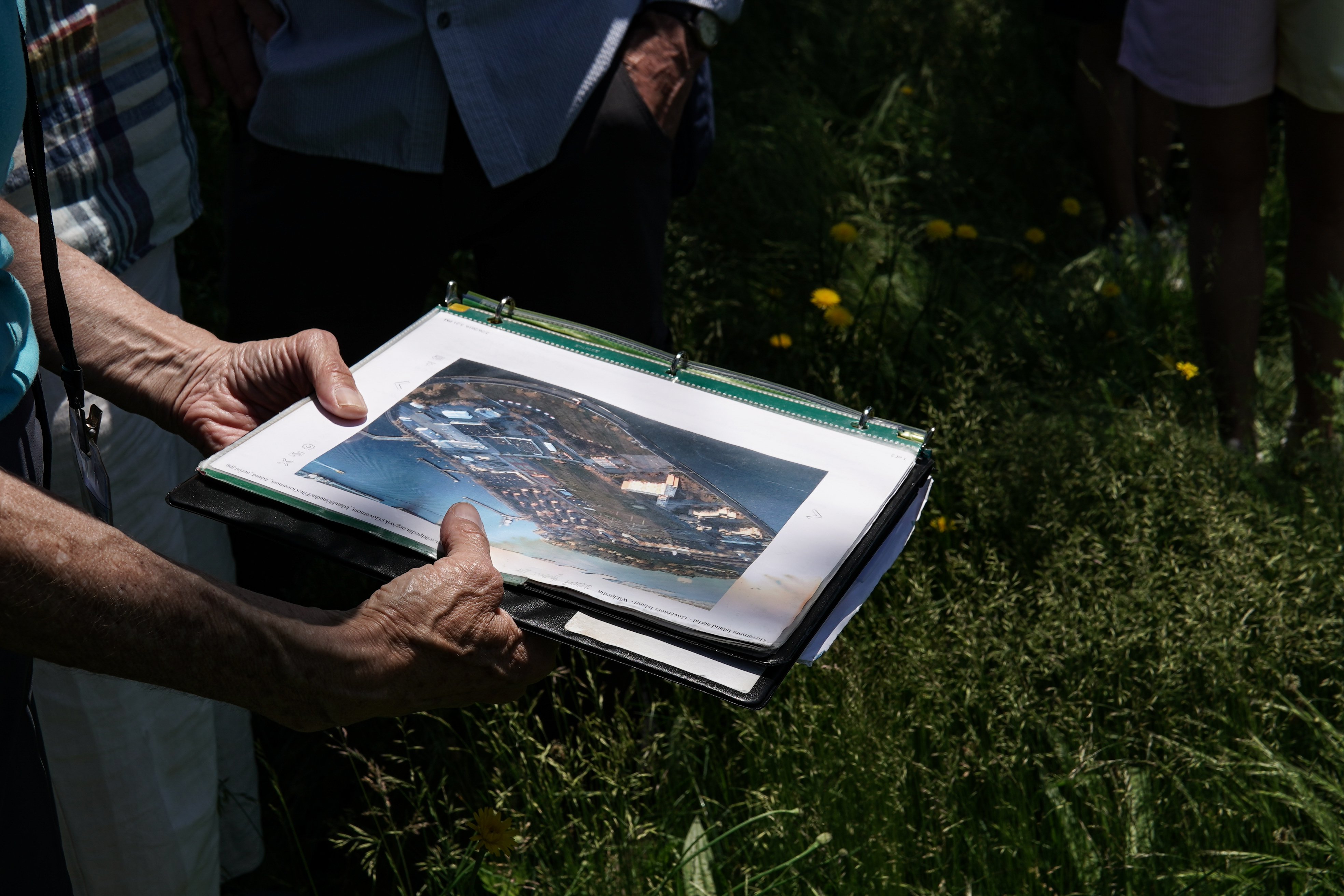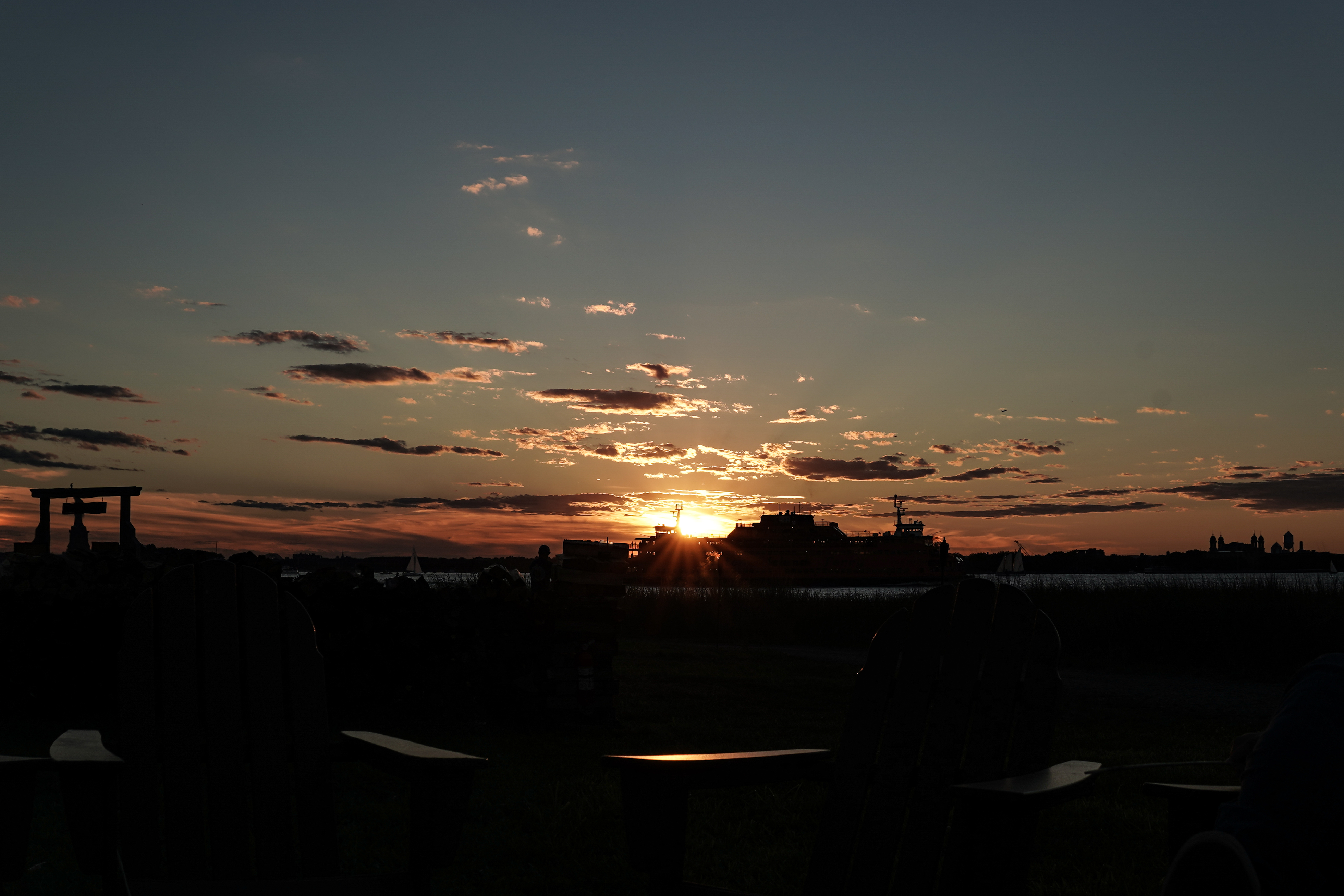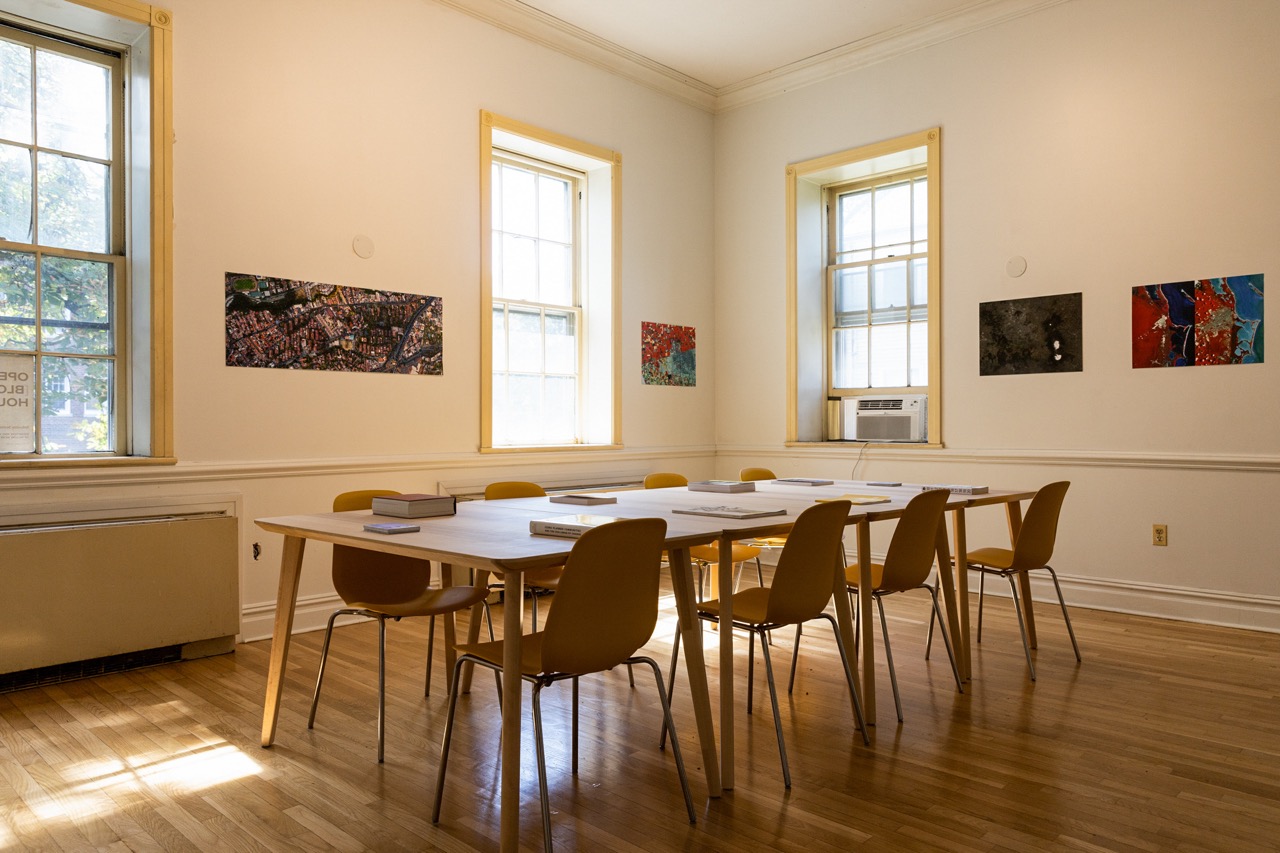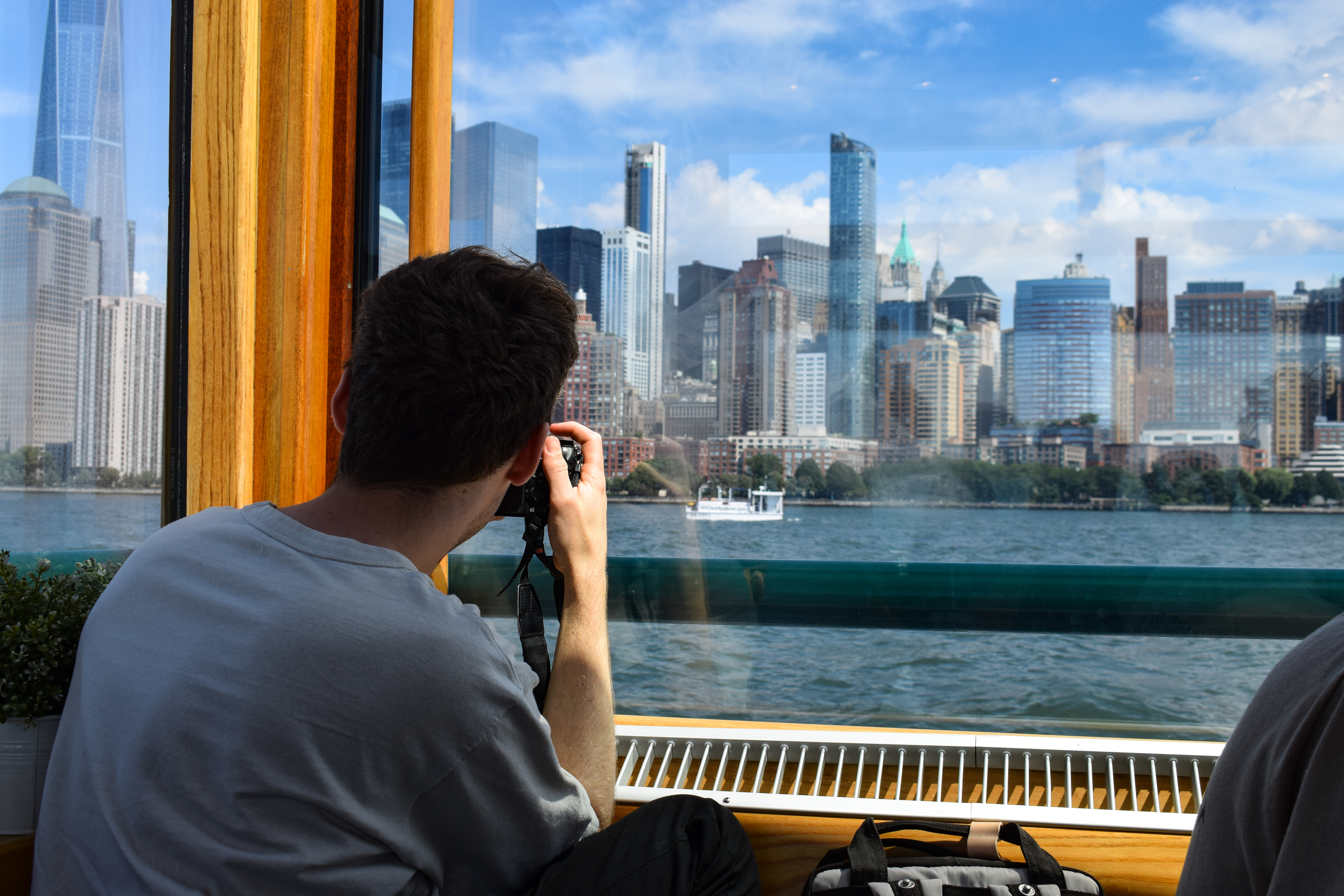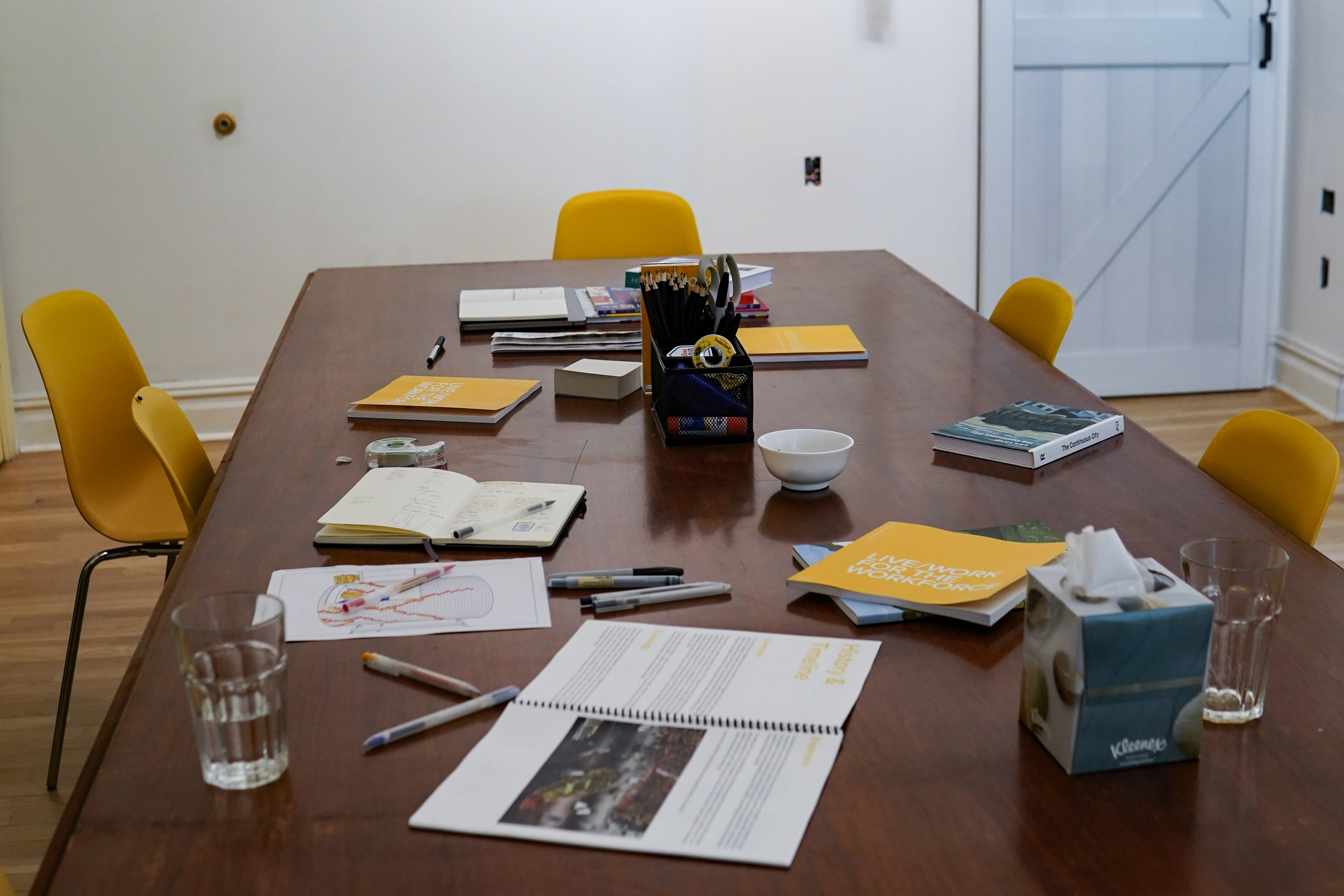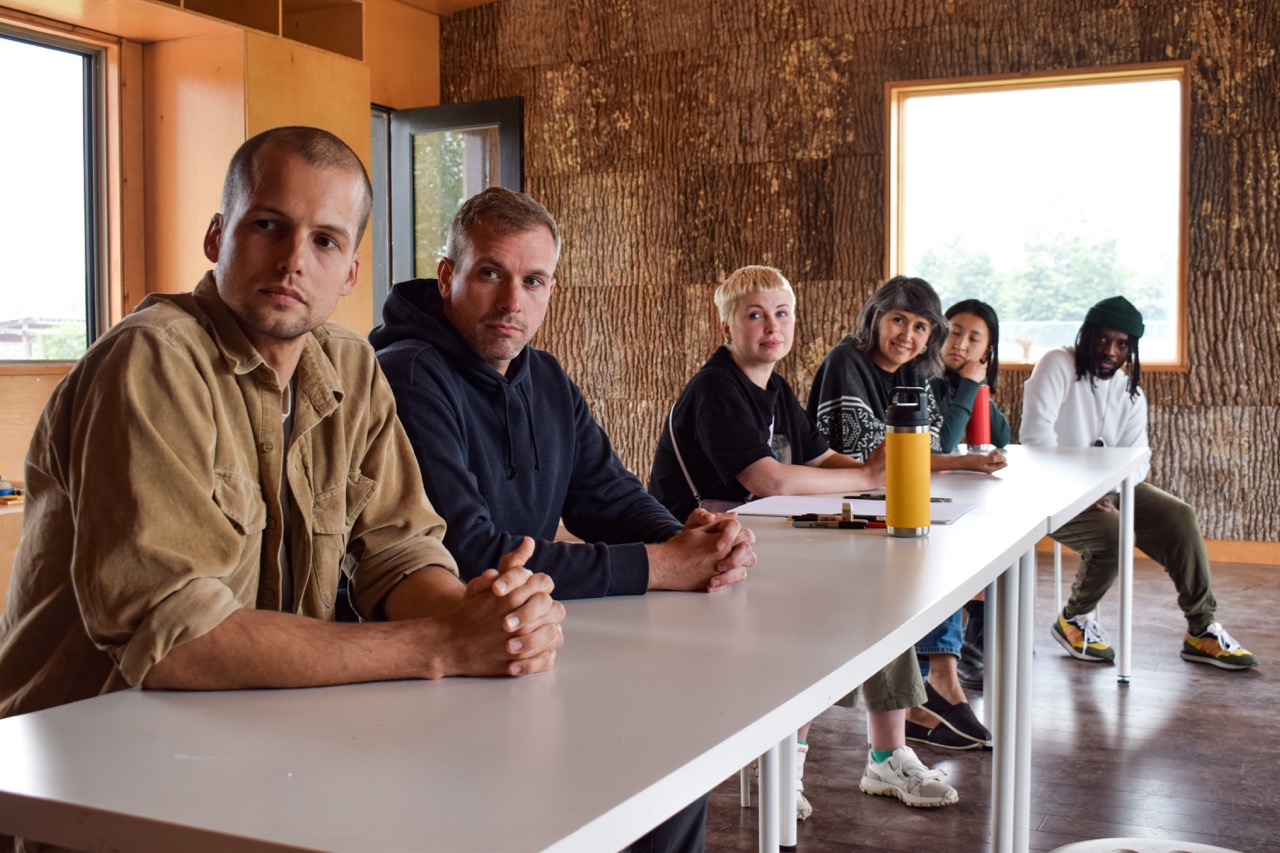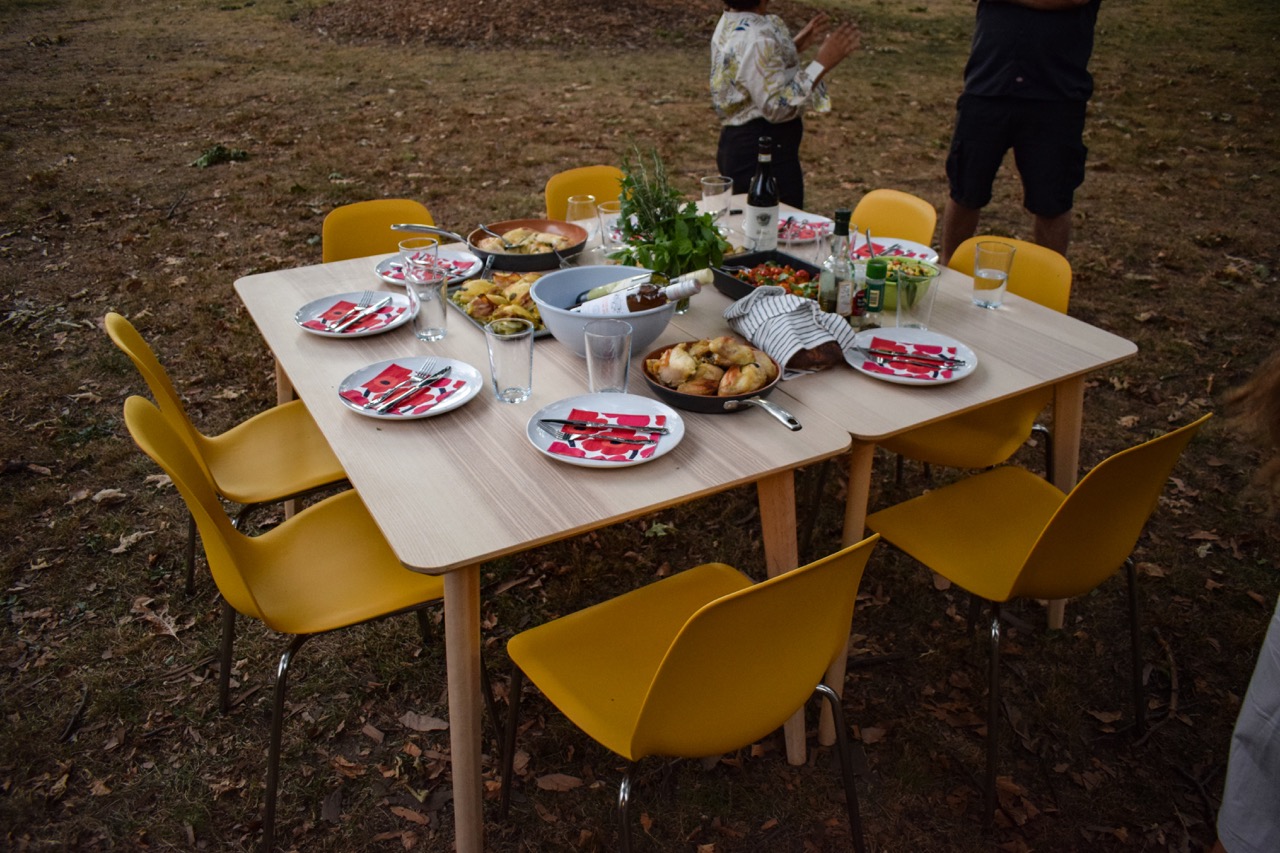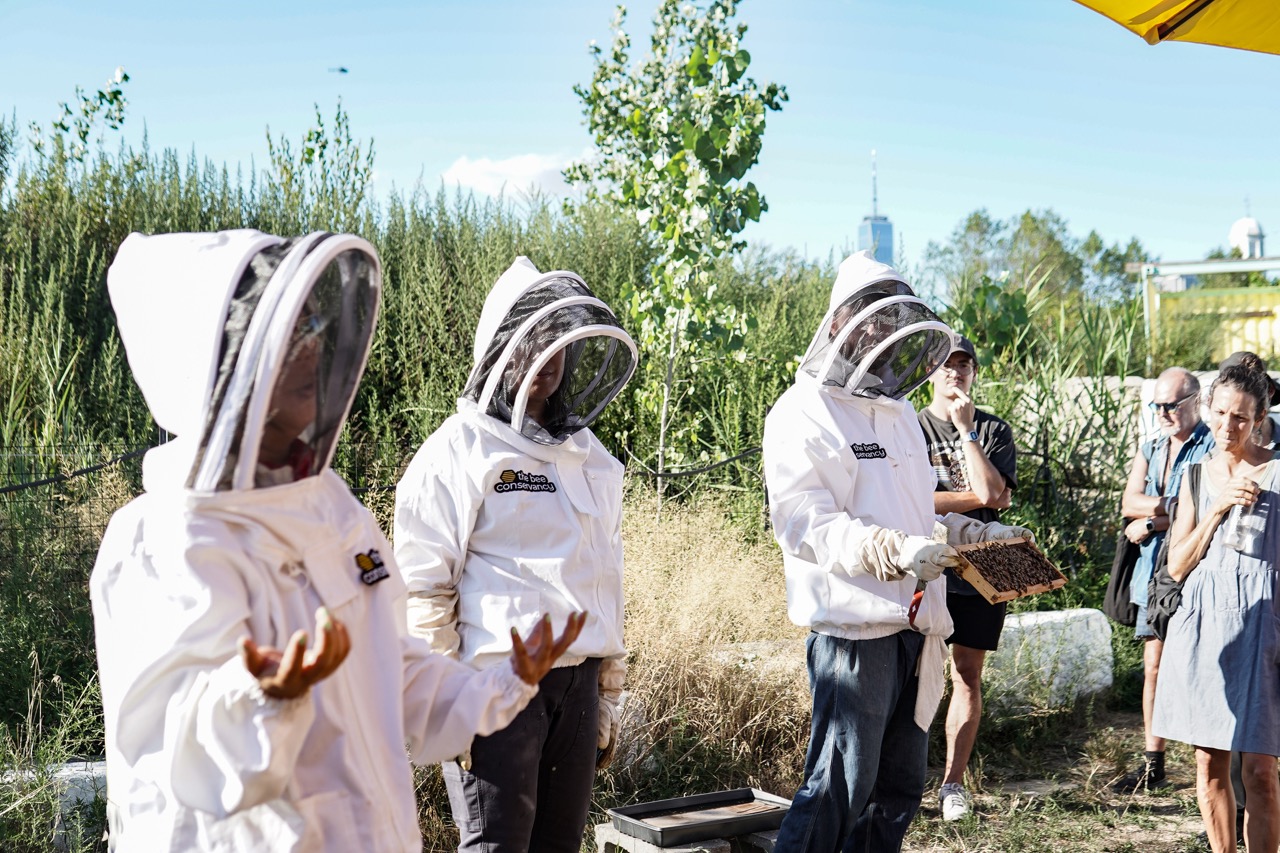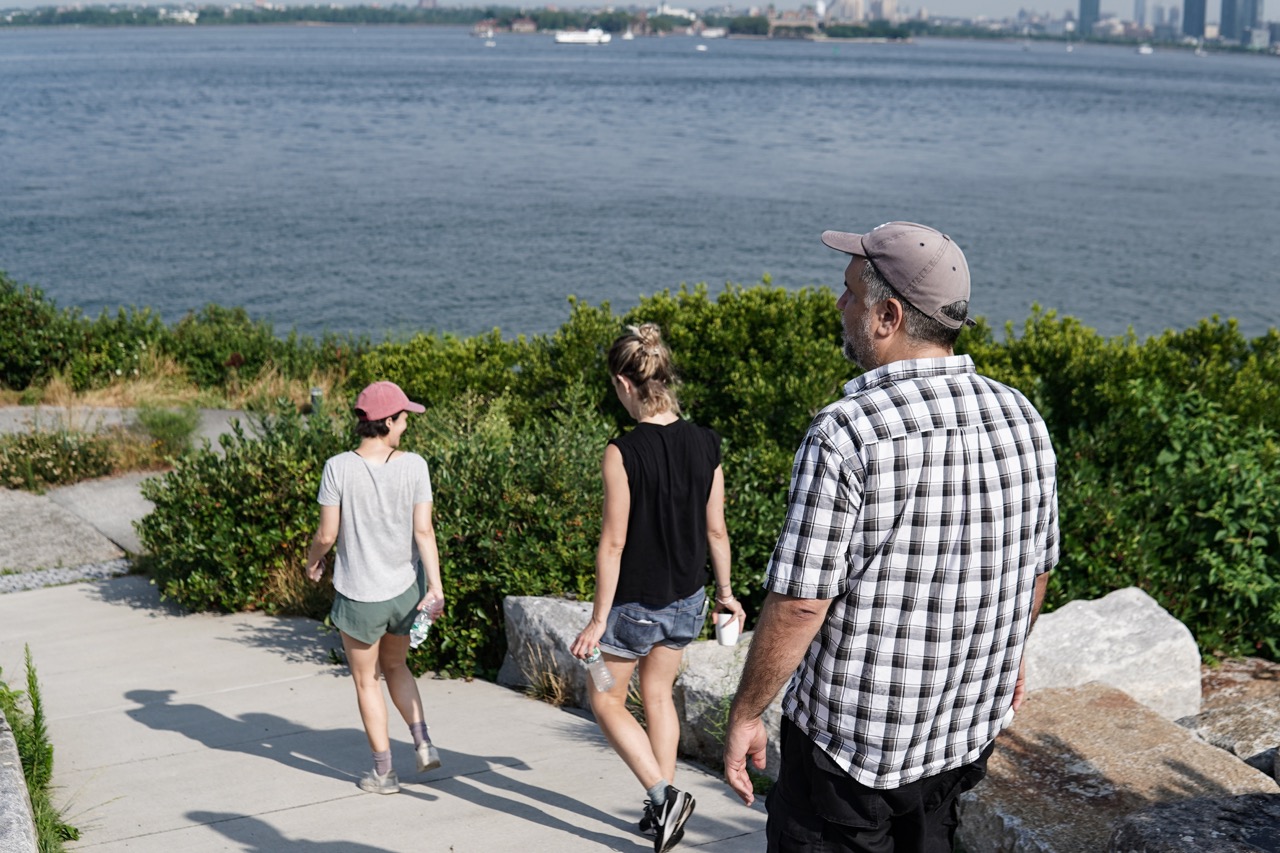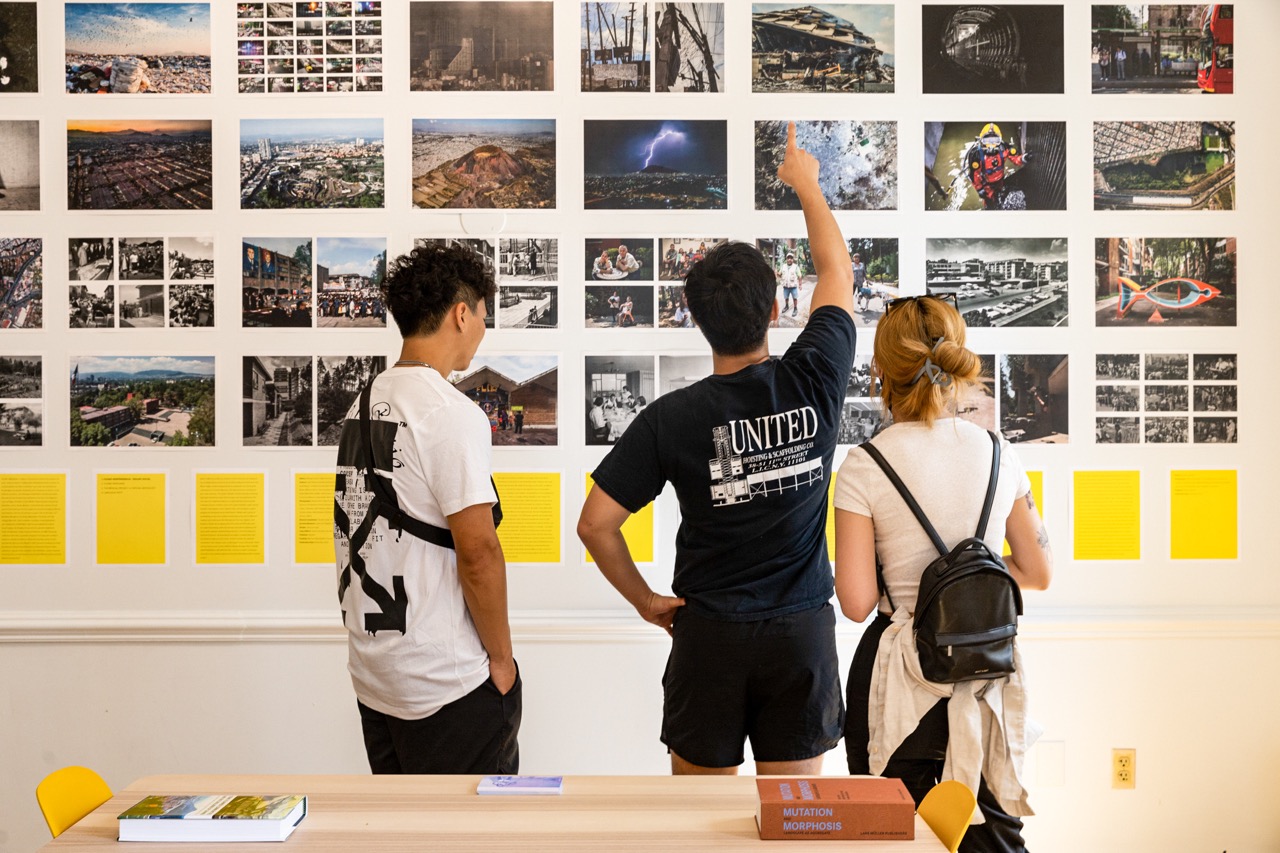2024 Summer Residency
June 1 - August 17, 2024
2024 Fall Residency
September 3 - November 17, 2024
Application closed April 21, 2024
June 1 - August 17, 2024
2024 Fall Residency
September 3 - November 17, 2024
Application closed April 21, 2024
2024 Summer & Fall Independent Project Residency at the Block House
Introduction
The Institute for Public Architecture (IPA) welcomes applications for the 2024 Summer and Fall Independent Projects Residency based at the historic Block House on Governors Island.
Emerging and mid-career architects, urbanists, landscape architects, designers, and those committed to the public realm in all disciplines are invited to apply. Applicants will bring their own interests and projects to the program and will receive opportunities to present their work to the public over the course of the Residency. Fellows receive project support through access to subject matter experts and resources relevant to their project.
IPA Fellows are among the first civilian residents to live on the Island since the Coast Guard’s exit in 1996. Fellows will enjoy unparalleled historic, natural, and urban resources with direct access to downtown Manhattan and waterfront Brooklyn neighborhoods via ferry. The IPA, a long-term tenant on Governors Island together with Billion Oyster Project, the Harbor School, Earth Matter, Beam Center and Lower Manhattan Cultural Council, is one of more than twenty arts, cultural, educational, and environmental nonprofit organizations operating on the Island, forming a unique community that connects with a diverse and growing audience of nearly one million annual visitors.
Emerging and mid-career architects, urbanists, landscape architects, designers, and those committed to the public realm in all disciplines are invited to apply. Applicants will bring their own interests and projects to the program and will receive opportunities to present their work to the public over the course of the Residency. Fellows receive project support through access to subject matter experts and resources relevant to their project.
IPA Fellows are among the first civilian residents to live on the Island since the Coast Guard’s exit in 1996. Fellows will enjoy unparalleled historic, natural, and urban resources with direct access to downtown Manhattan and waterfront Brooklyn neighborhoods via ferry. The IPA, a long-term tenant on Governors Island together with Billion Oyster Project, the Harbor School, Earth Matter, Beam Center and Lower Manhattan Cultural Council, is one of more than twenty arts, cultural, educational, and environmental nonprofit organizations operating on the Island, forming a unique community that connects with a diverse and growing audience of nearly one million annual visitors.
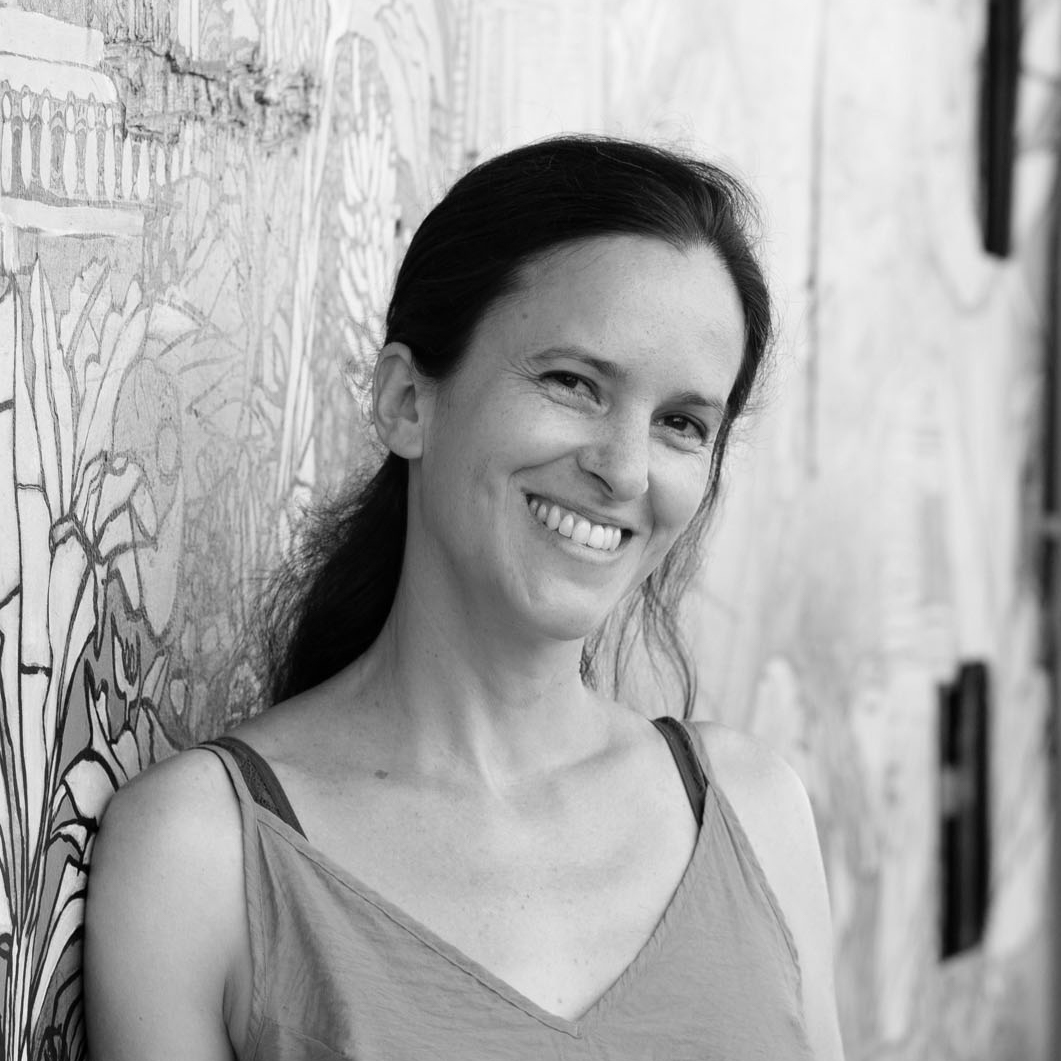
...When I arrived at the Block House, everything was in place for me to focus fully on my work. I finished more writing in these three and a half months than I did in years...” - Line Algoed ‘22 Fellow
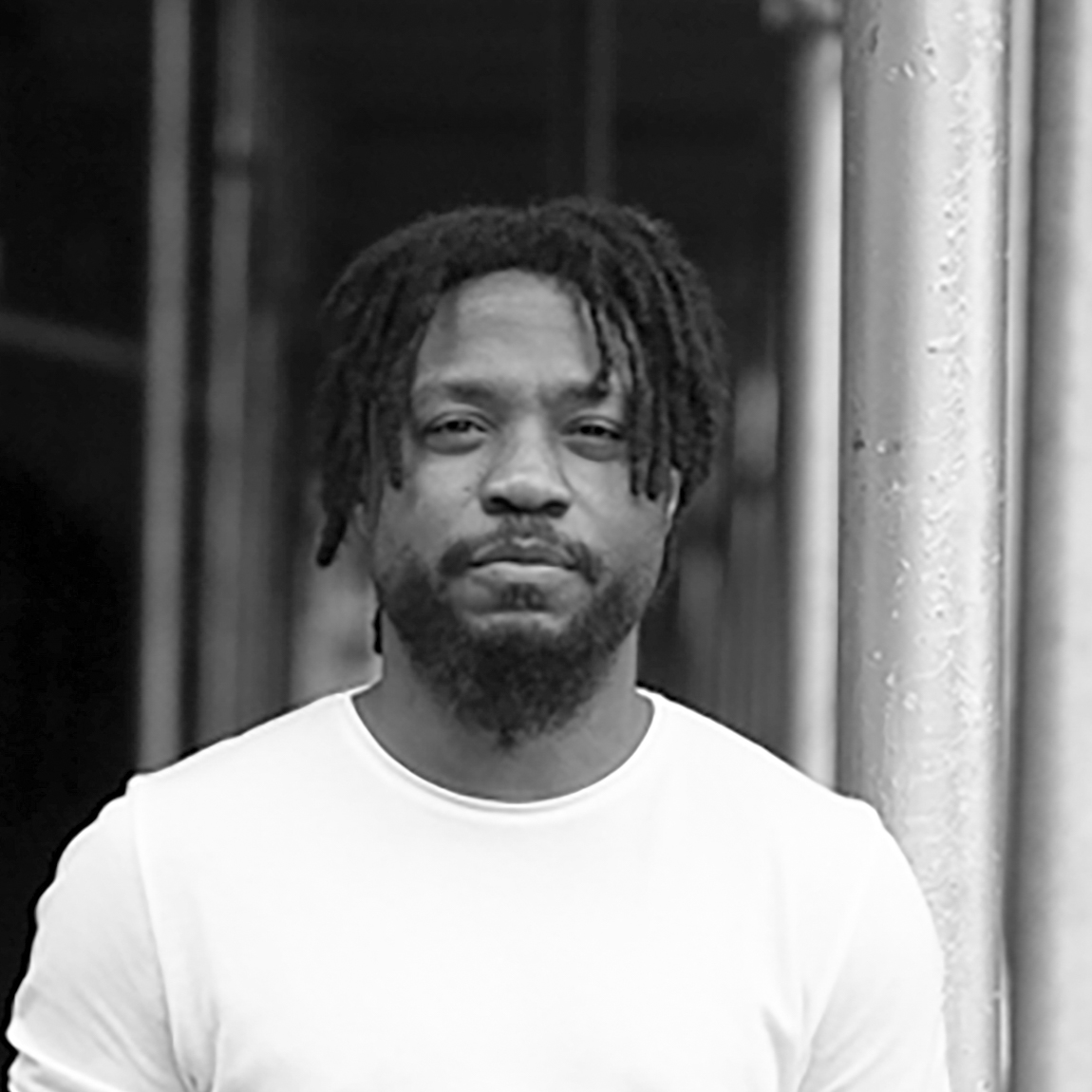
“...The residency challenged me to focus on a process out of my typical framework and consider other processes/spatial narratives within a natural landscape…” - Immanuel Oni ‘23 Fellow
Read more from our Fellows at the bottom of the page.
Read more from our Fellows at the bottom of the page.
Who Should Apply
The Residency program is open to local and global applicants from diverse backgrounds, educations, experiences, and aspirations at any stage of their career. Applicants may be architects, urbanists, landscape architects, or designers working in theoretical or practical disciplines, with an emphasis on the public realm. The program is especially well-suited for those on sabbatical or with funded projects. The program is not open to current students.
The Residency program is intended for applicants with a clearly developed focus and/or approach who need time and space to work independently within the context of a supportive communal environment. Fellows are encouraged to skill-share and engage with their cohort through both planned and spontaneous activities throughout the Residency.
Although collaborators may apply, each applicant must complete an individual application and will be evaluated separately, with no guarantee that both collaborators will be selected.
︎︎︎ See previous Fellows
The Residency program is intended for applicants with a clearly developed focus and/or approach who need time and space to work independently within the context of a supportive communal environment. Fellows are encouraged to skill-share and engage with their cohort through both planned and spontaneous activities throughout the Residency.
Although collaborators may apply, each applicant must complete an individual application and will be evaluated separately, with no guarantee that both collaborators will be selected.
︎︎︎ See previous Fellows
Program Goals
This program is designed for applicants with research and design projects at any stage of development who would benefit from sharing their work in the collective, interdisciplinary context of the Residency. To that end, time will be set aside throughout the Residency for Fellows to present and discuss their work with the cohort, IPA staff, guests, and the public.
During the Residency, Fellows’ work can be presented in any format: academic papers, articles, and/or book chapters, film, installations, drawings, models, macquettes, and other media. The program will culminate in an exhibition of work at the Block House, and will be published on the IPA’s digital channels and website.
During the Residency, Fellows’ work can be presented in any format: academic papers, articles, and/or book chapters, film, installations, drawings, models, macquettes, and other media. The program will culminate in an exhibition of work at the Block House, and will be published on the IPA’s digital channels and website.
Program Structure
The Independent Projects Residency offers applicants the opportunity to bring their own interests and projects to New York City, with its vast network of expertise and leadership in the fields of architecture, urbanism, and design. Fellows will present the progress of their work to the public at Open [Block] House events throughout the Residency on Governors Island. Each Fellow will also receive project support through the IPA’s network of subject matter experts and resources.
Programming includes:
︎︎︎ See previous programs
Programming includes:
- Open [Block] House: a series of public events at the Block House that welcome visitors and invited guests to engage in conversation and review project progress with Fellows.
- Weekend Open Library: visitors are welcomed into the Block House library and gallery on weekends. Fellows are invited to interact with visitors and voluntarily display their progress.
- Dinner Parties: a series of organized meals are held throughout the program and will welcome professionals, esteemed guests and former fellows to a casual evening dinner with Fellows.
- Internal Cohort Activities: Fellows are invited to participate in urban walking tours, field trips, outings, museum and archive visits, and events held by other Island organizations and in the New York City region. Activities vary with each program to take advantage of each season.
︎︎︎ See previous programs
Selection
The selection of Fellows will be based on experience, intent and relevance of their project to the IPA’s mission of addressing social, physical and environmental inequities in the city. An independent selection committee composed of experts within the fields of architecture and design will review applications (to be announced shortly). Preference will be given to project proposals that make clear how the applicant will benefit from being based in New York City and on Governors Island.
Fellow Responsibilities
Fellows will be expected to:
![]()
![]()
![]()
![]()
![]()
![]()
![]()
![]()
![]()
![]()
![]()
![]()
![]()
![]()
![]()
![]()
![]()
![]()
![]()
![]()
![]()
![]()
![]()
![]()
- Live and work collectively with other Fellows, regularly engaging in communal cohort activities.
- Purchase their own groceries and any other personal items throughout the Residency (with the exception of occasional catered events).
- Keep private and communal areas tidy.
- Participate in public presentations of work.
- Submit work completed during the Residency to the IPA before the conclusion of the program.
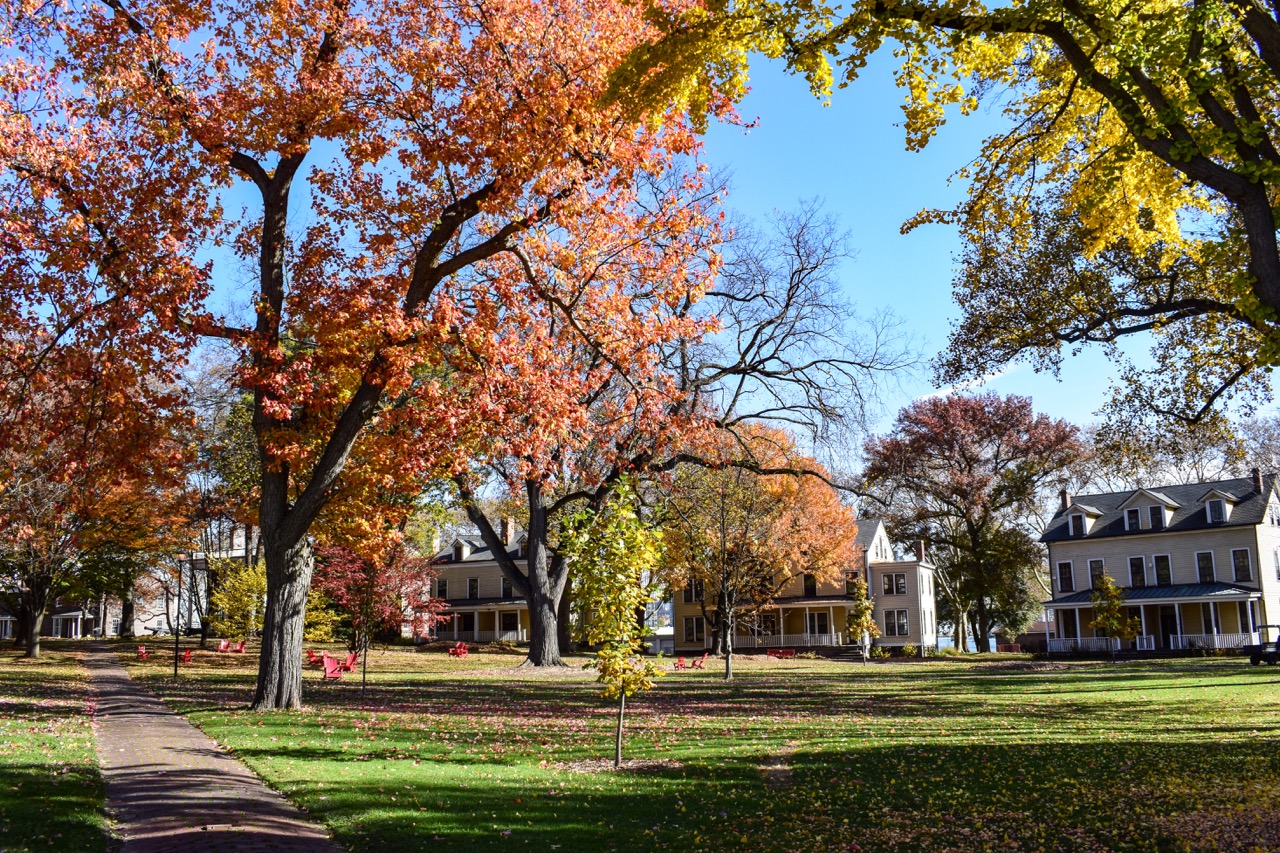
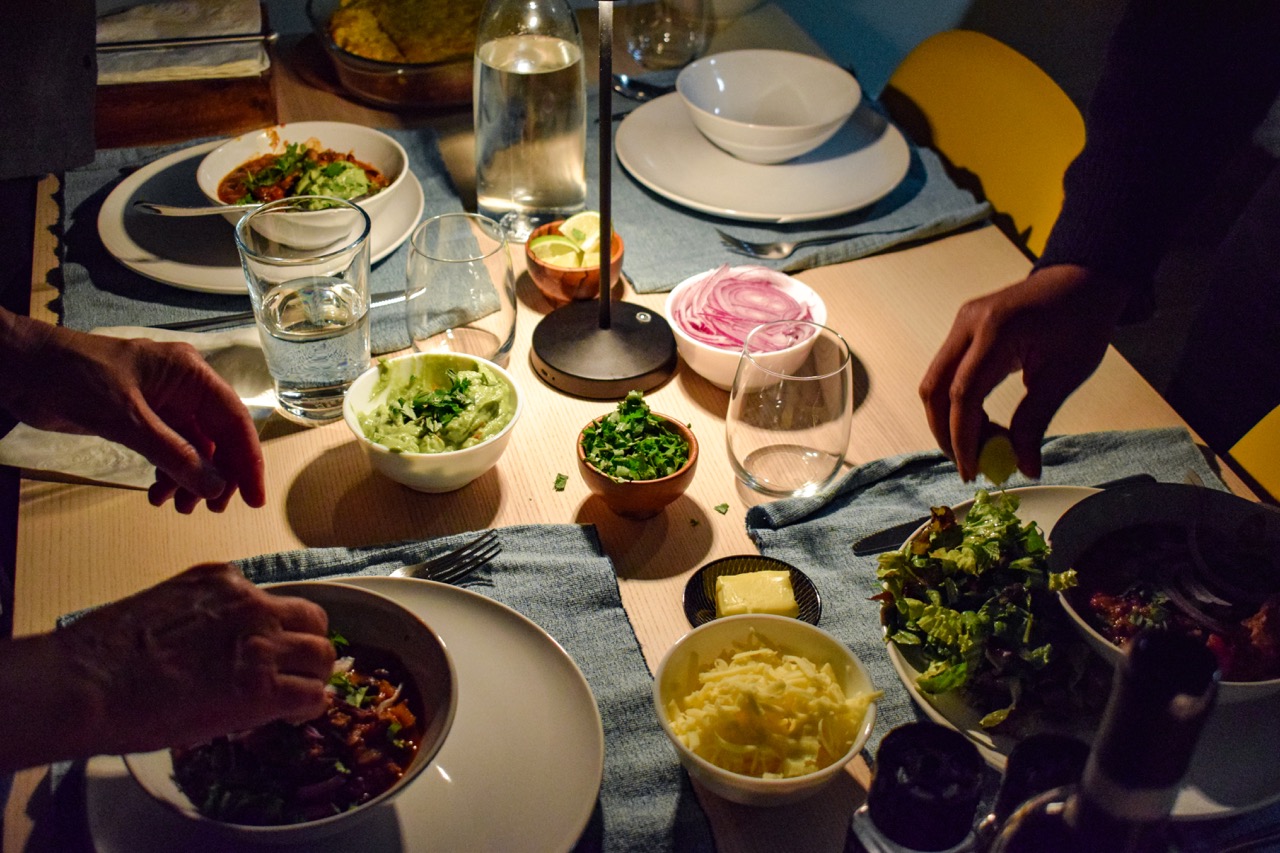
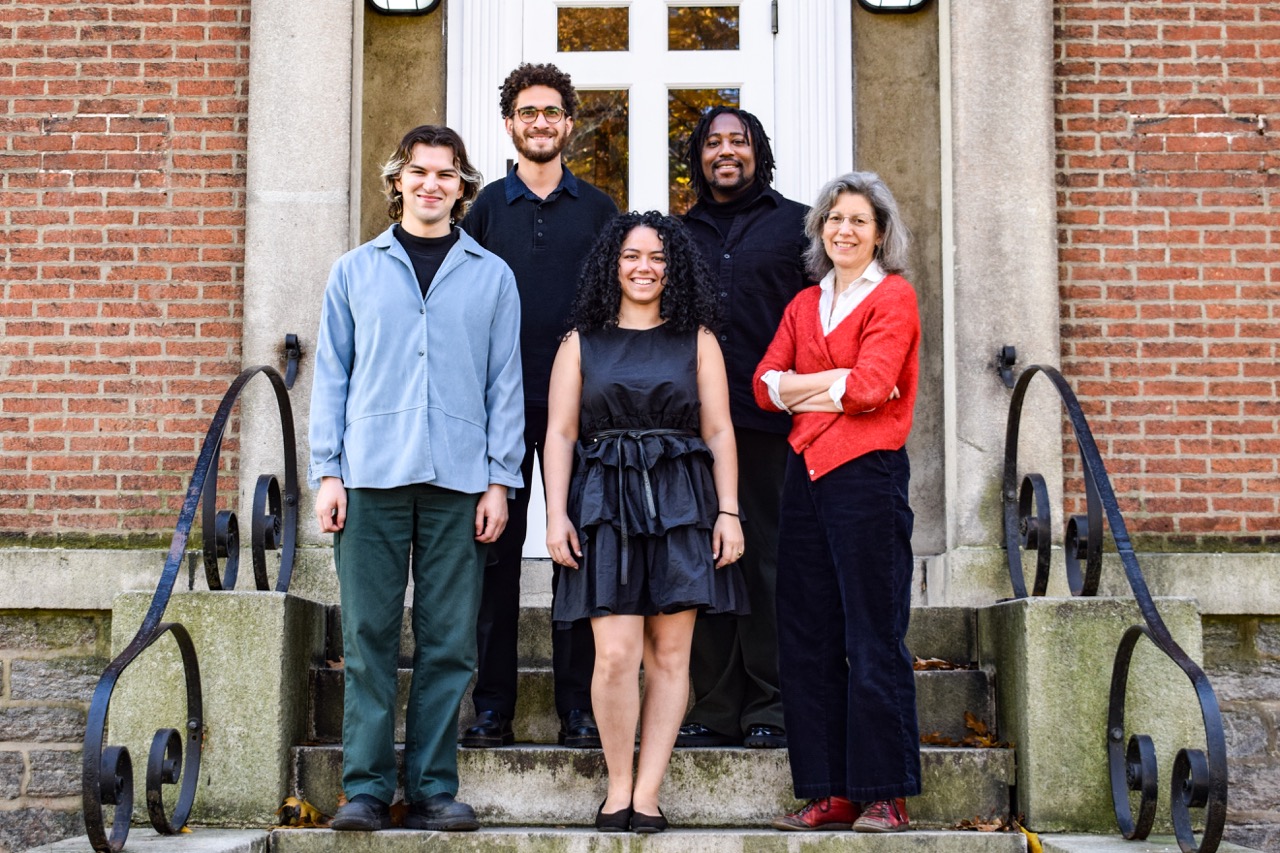
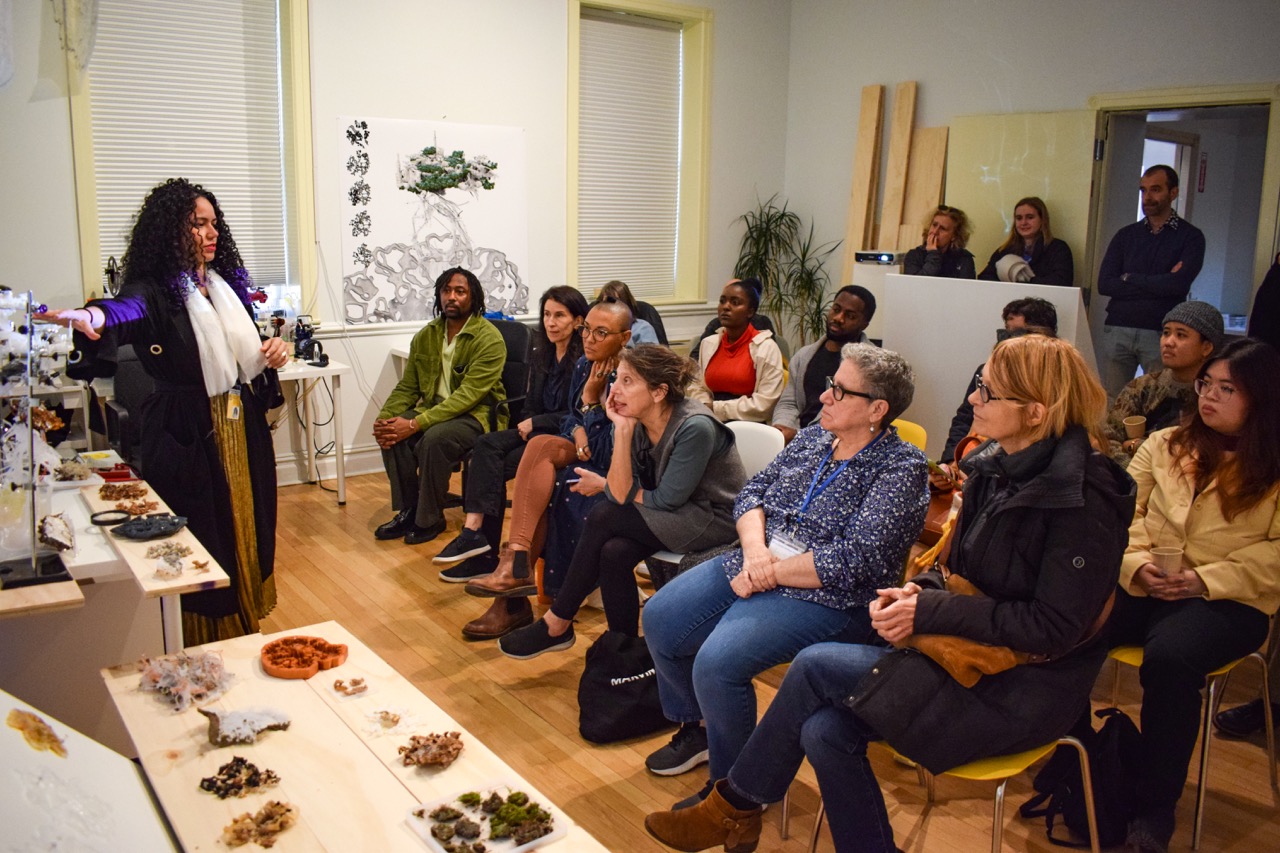
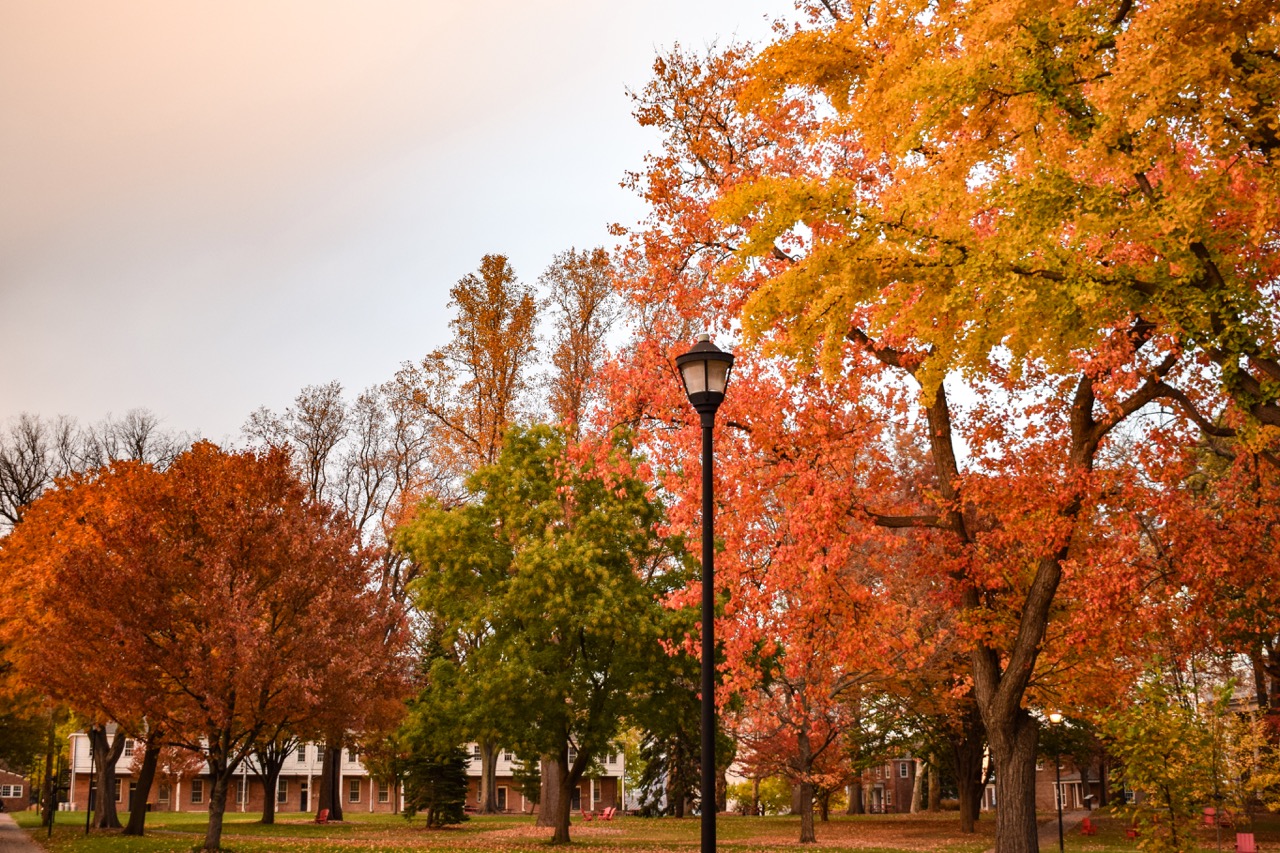
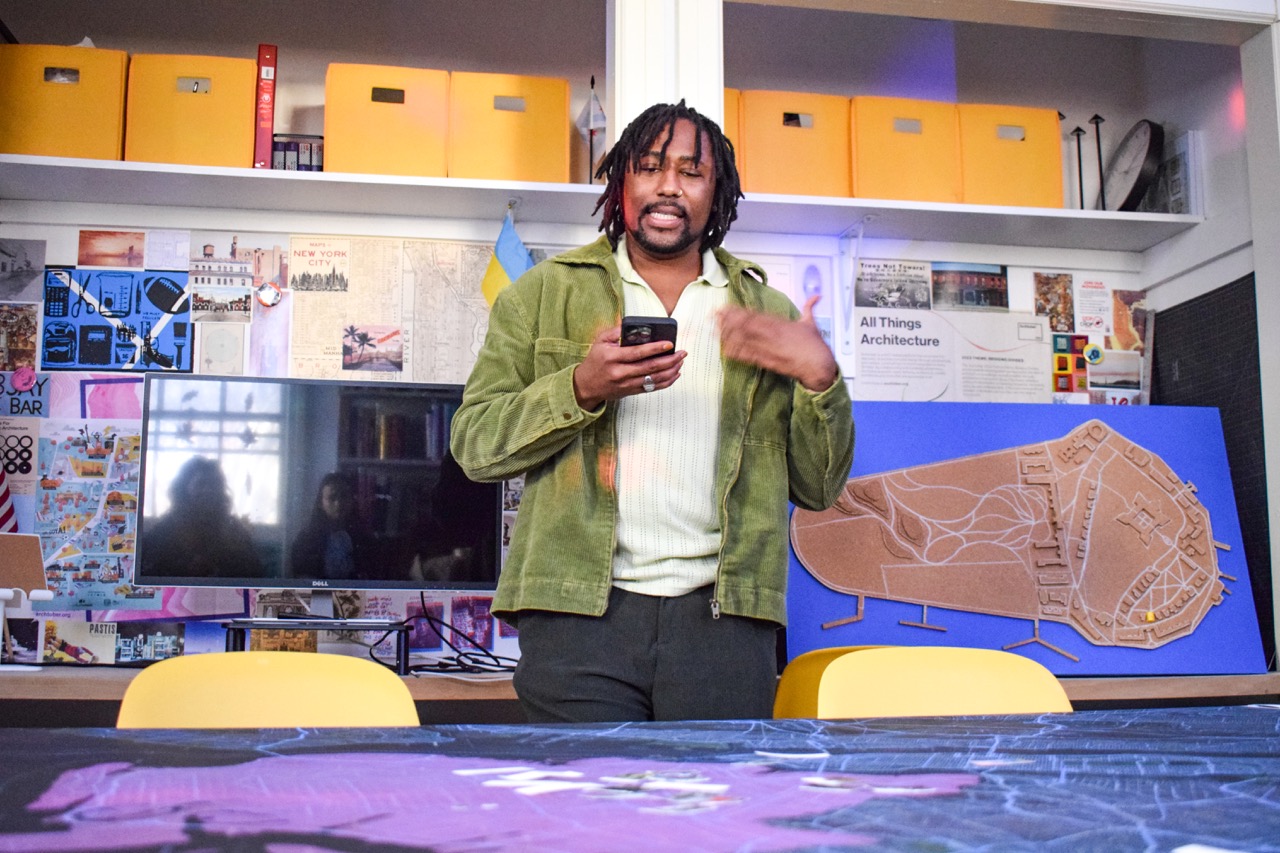
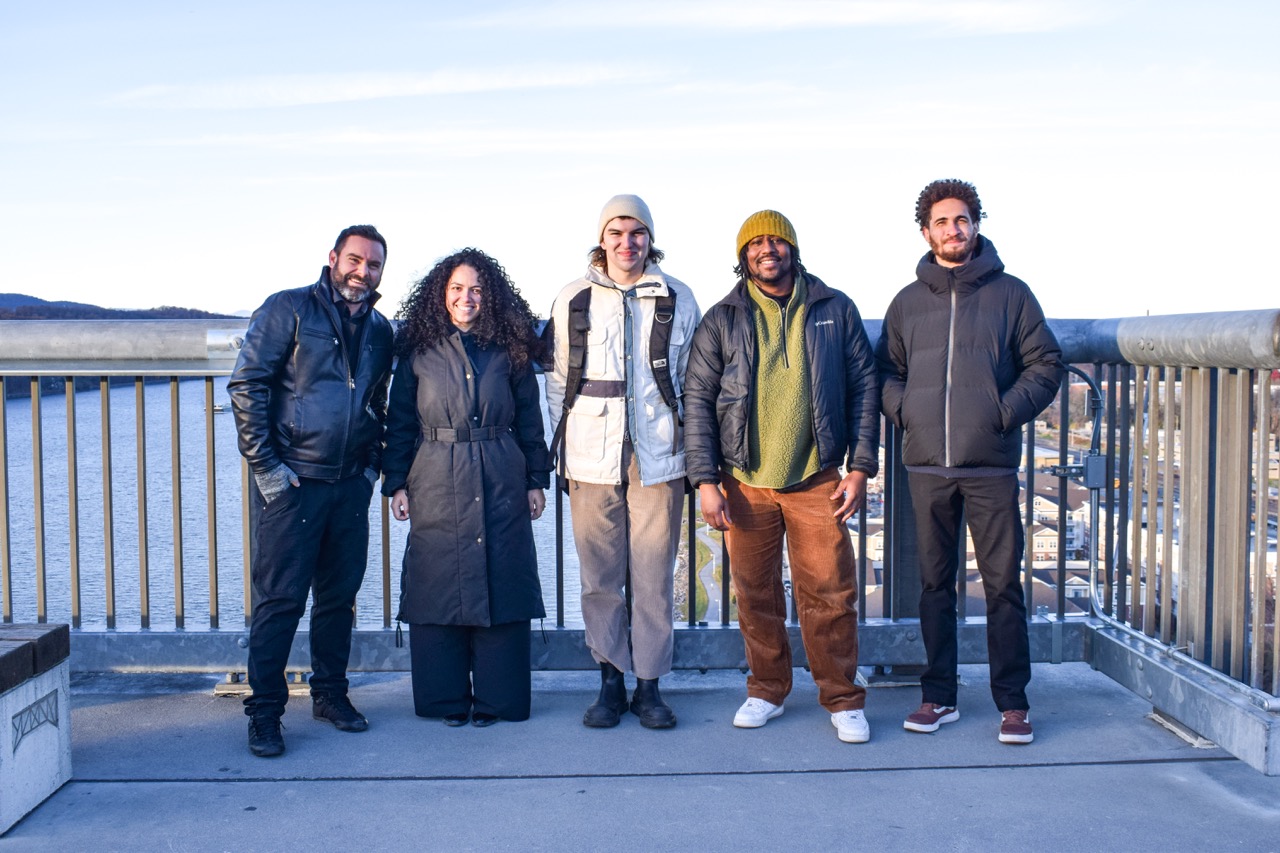
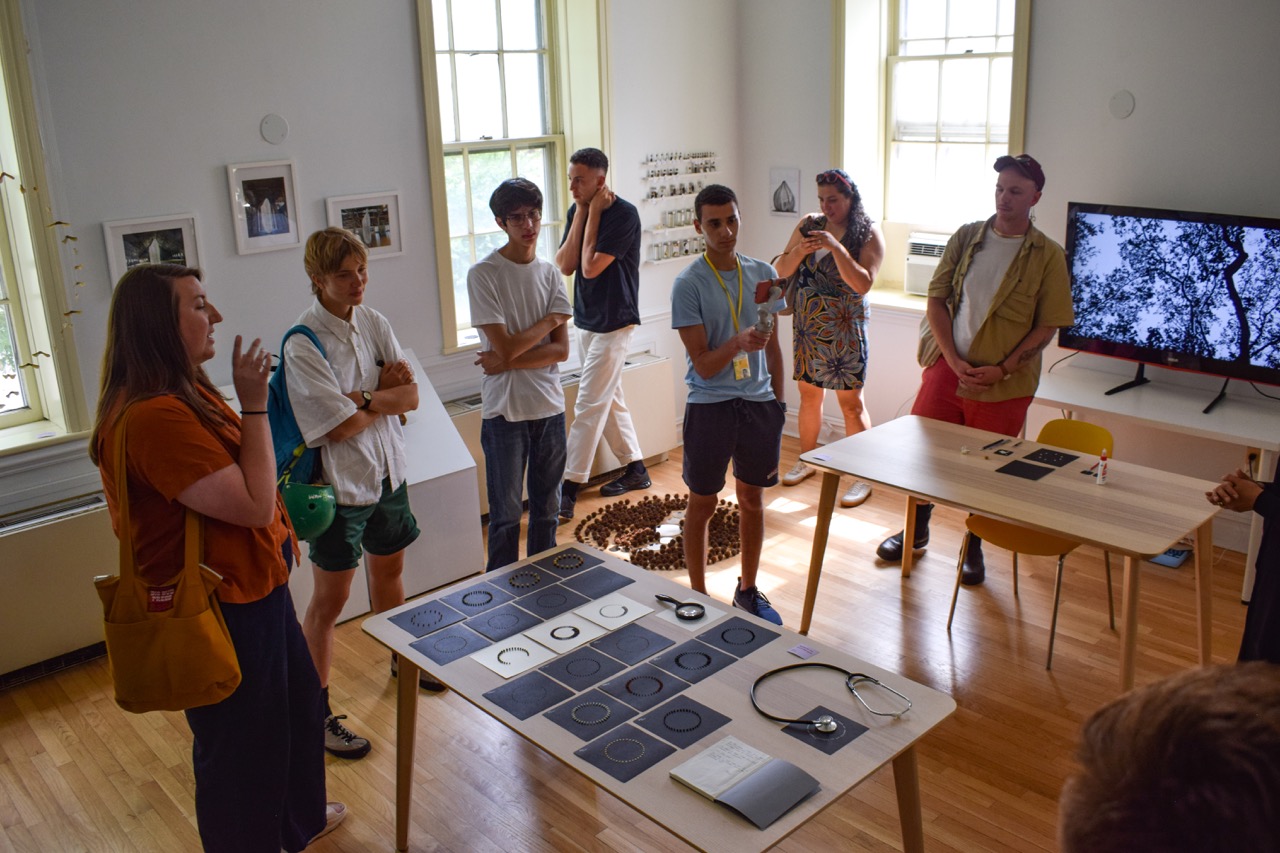
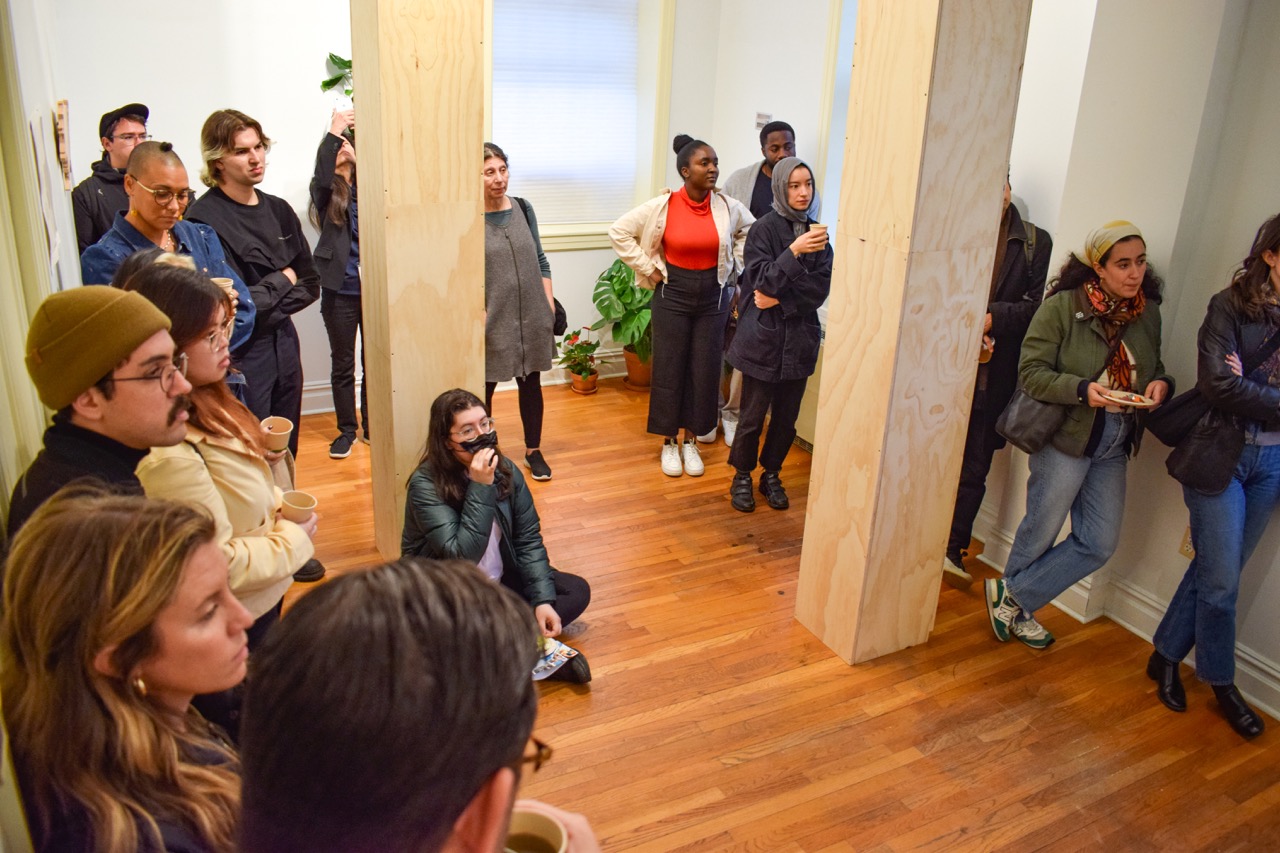
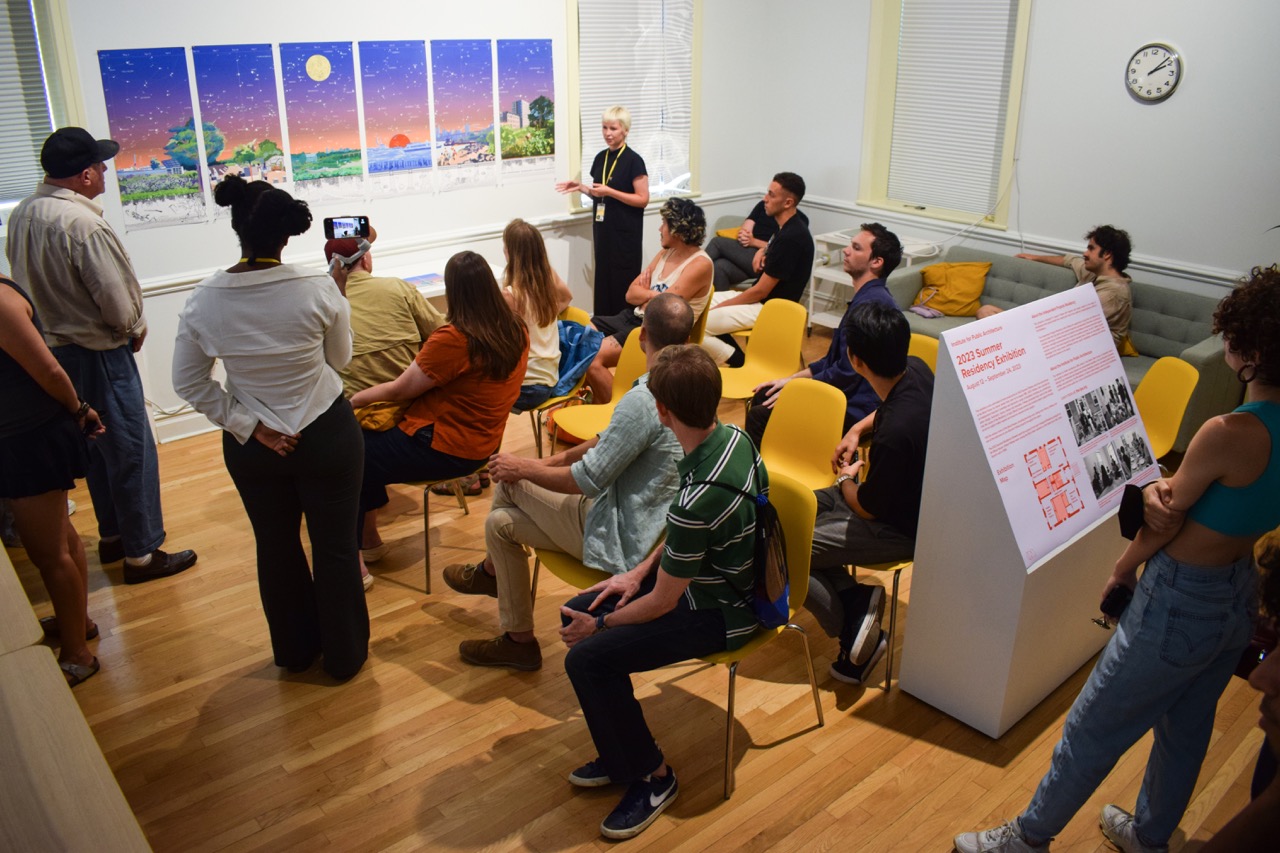
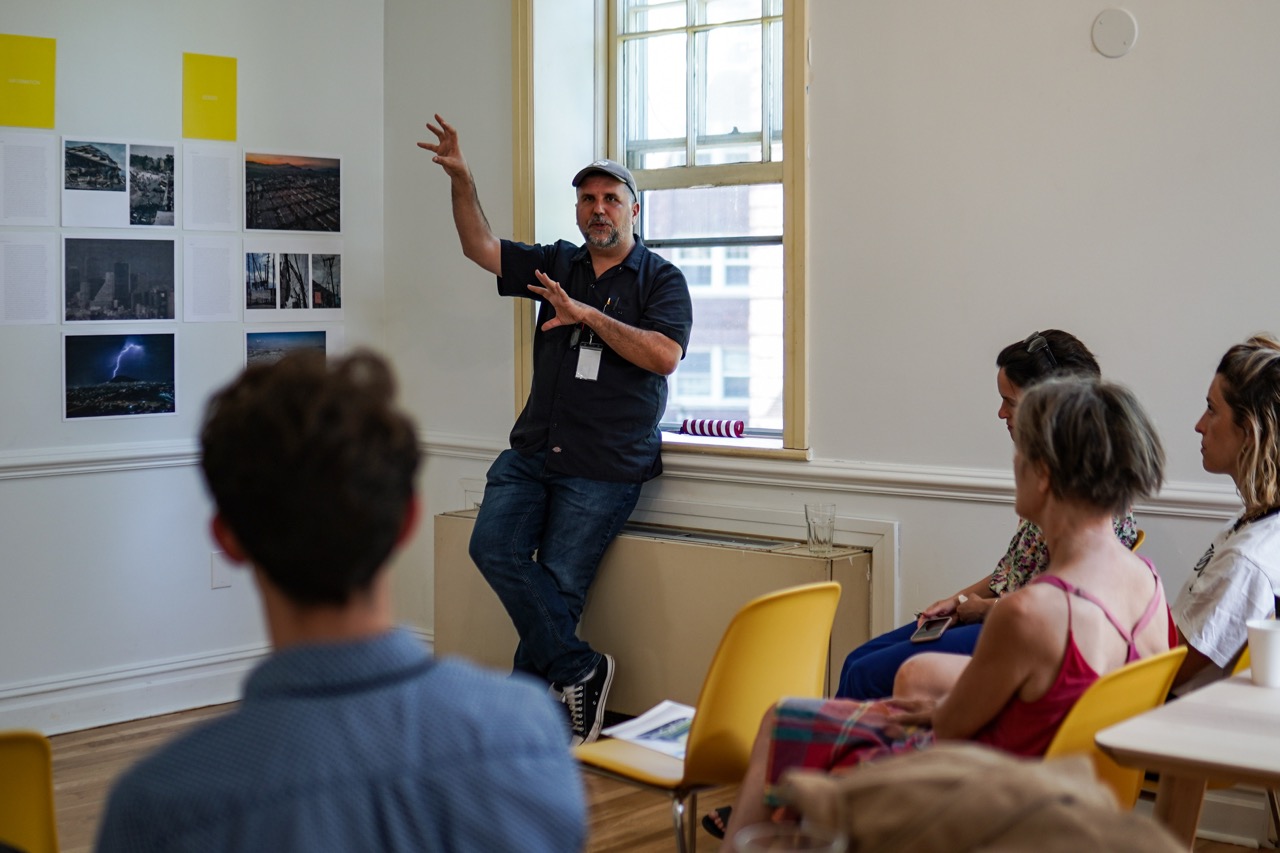
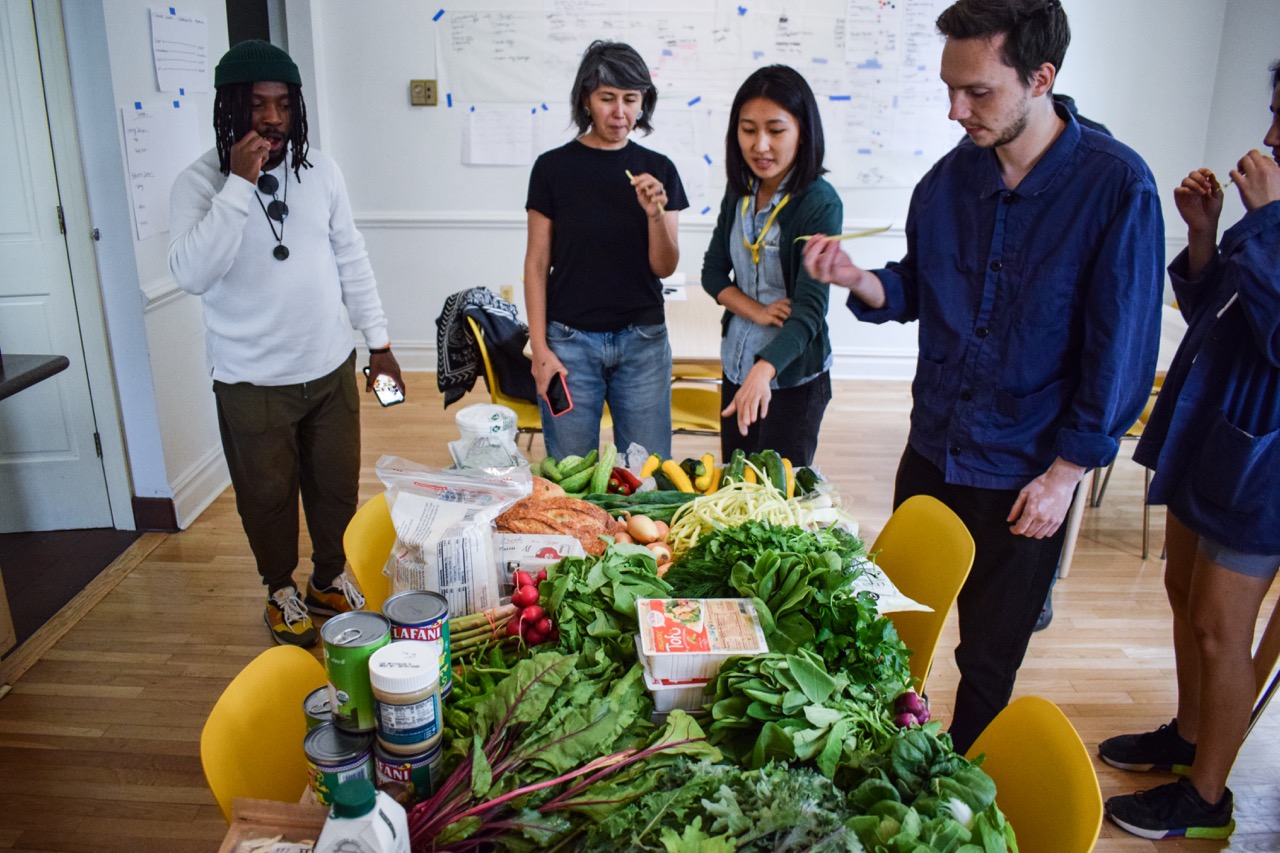
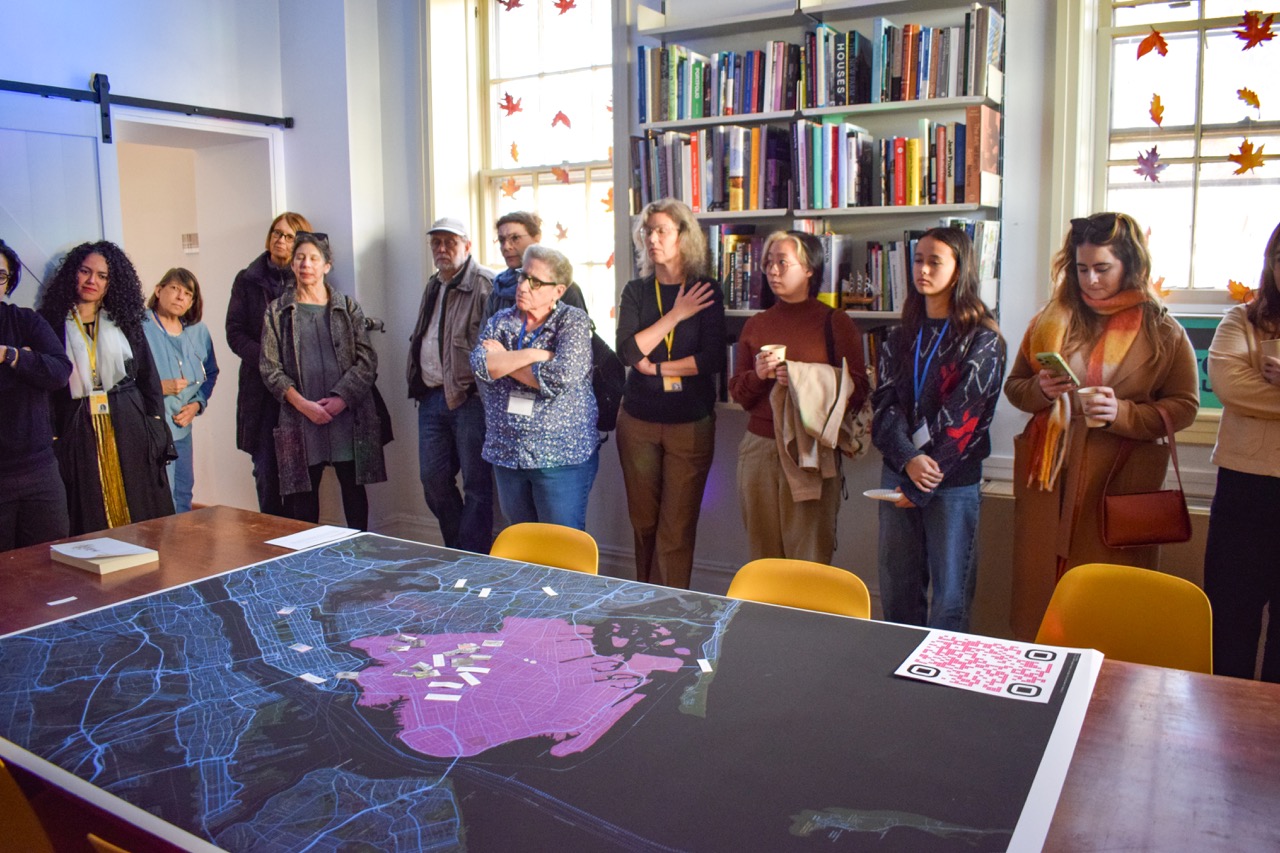
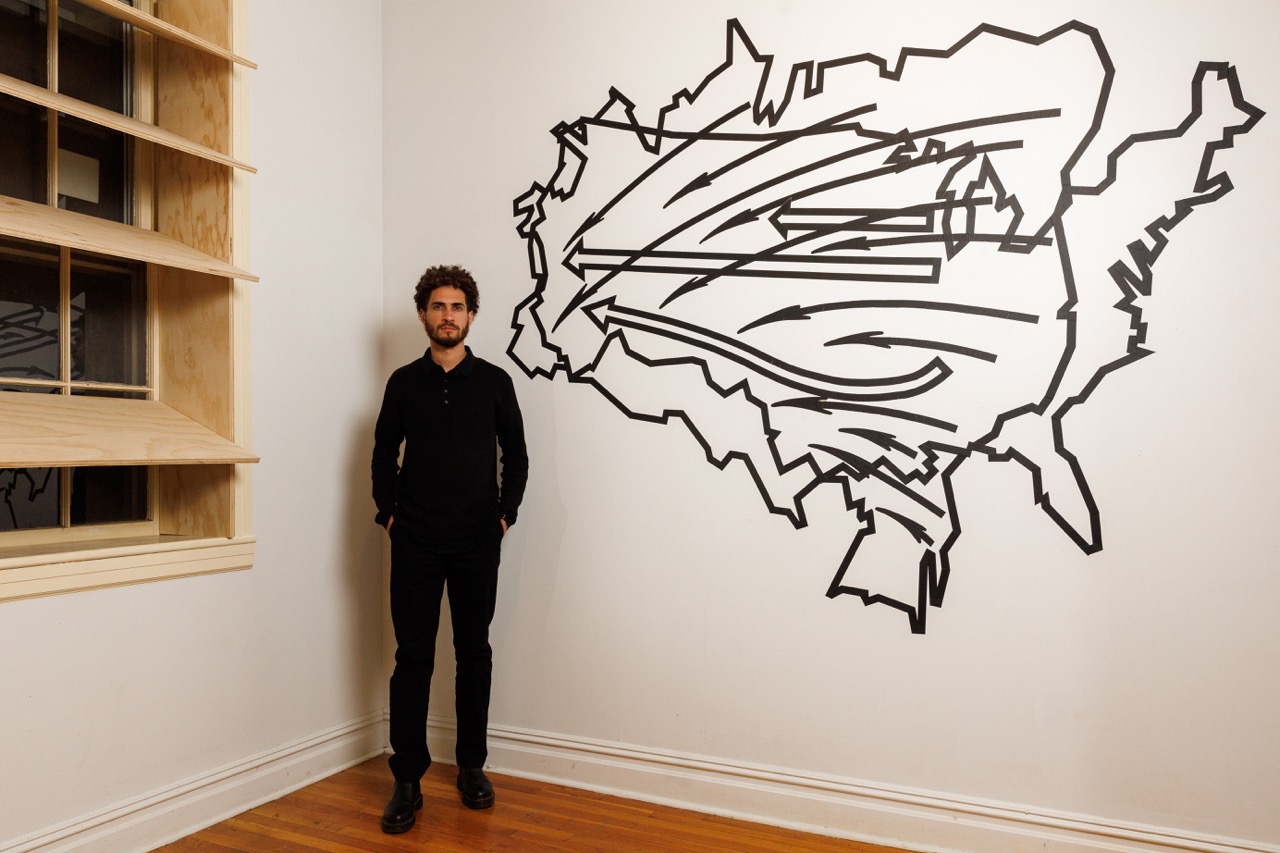
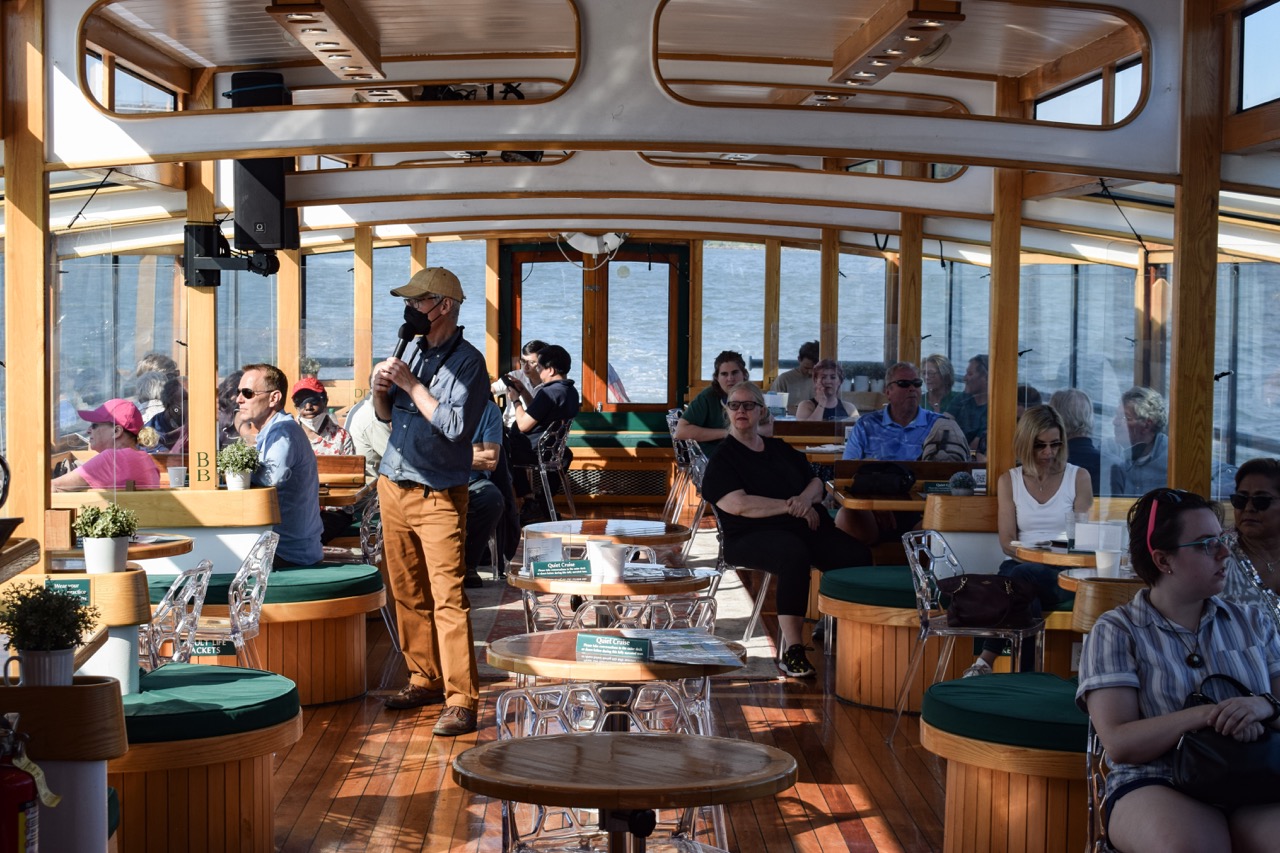
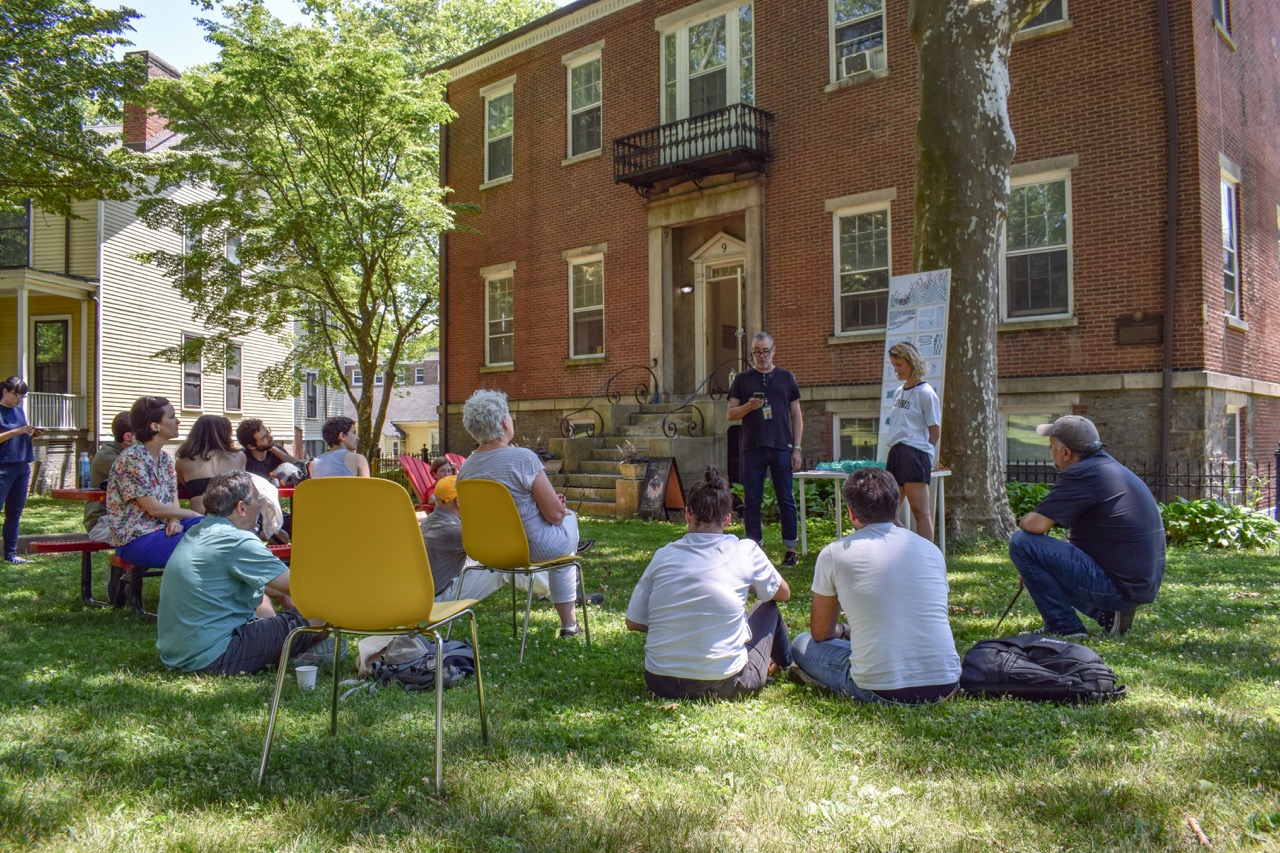
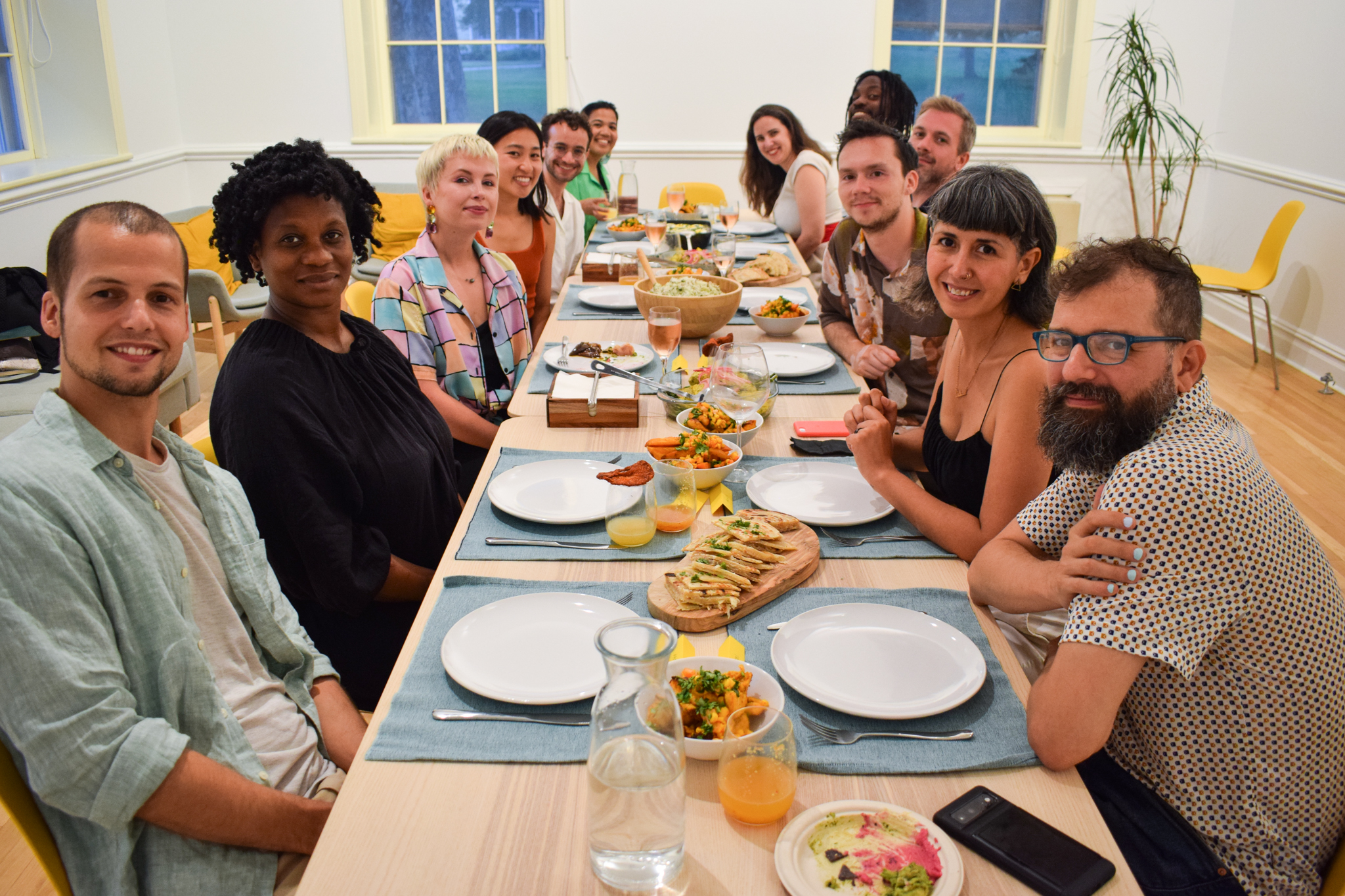
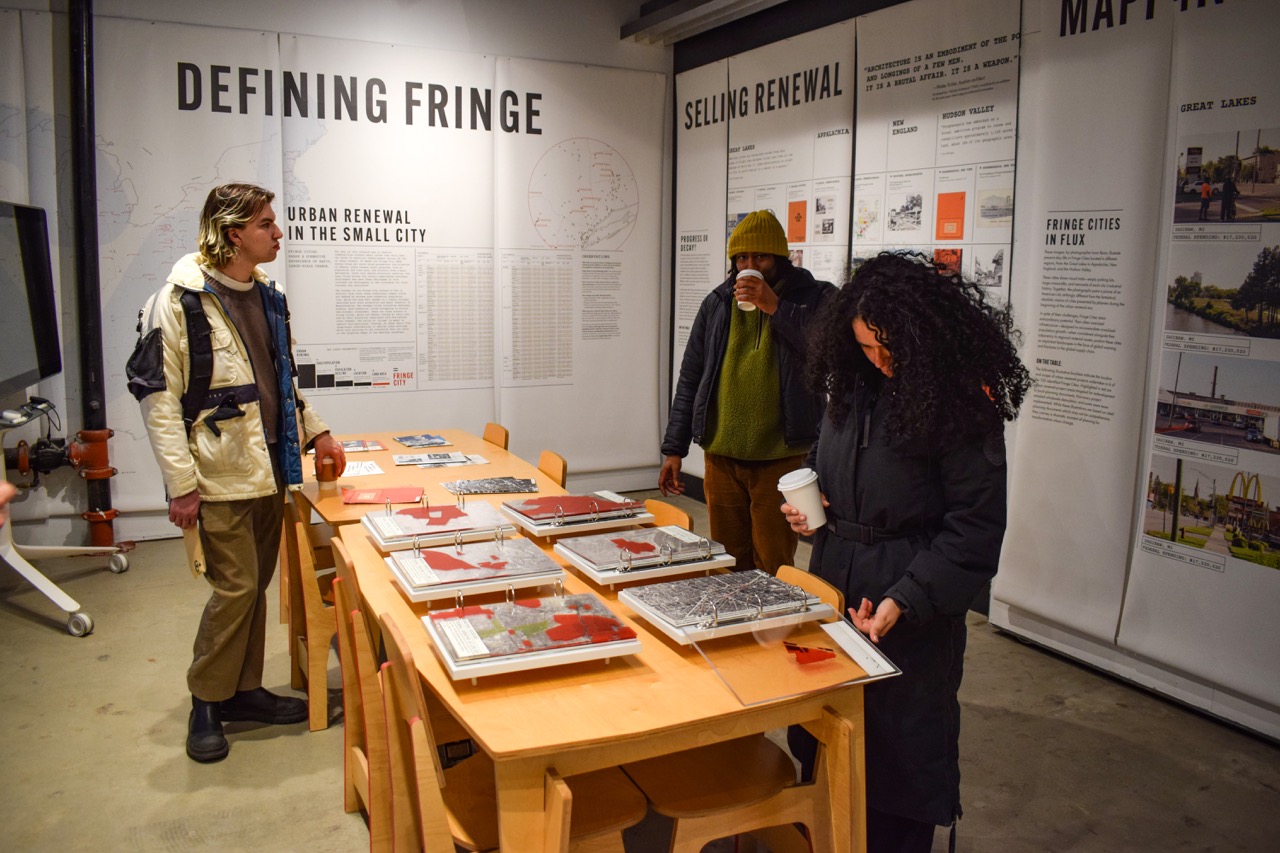
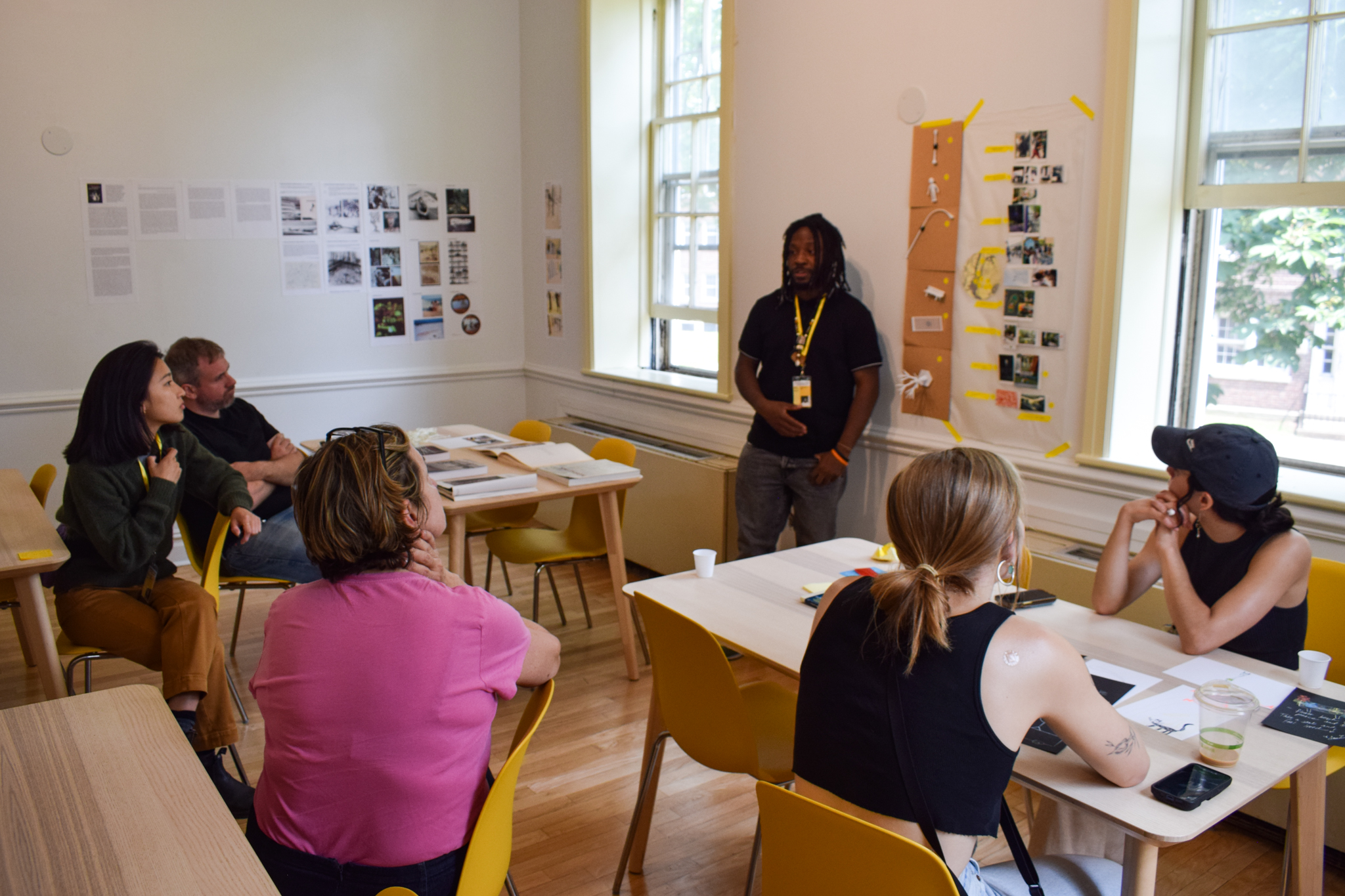
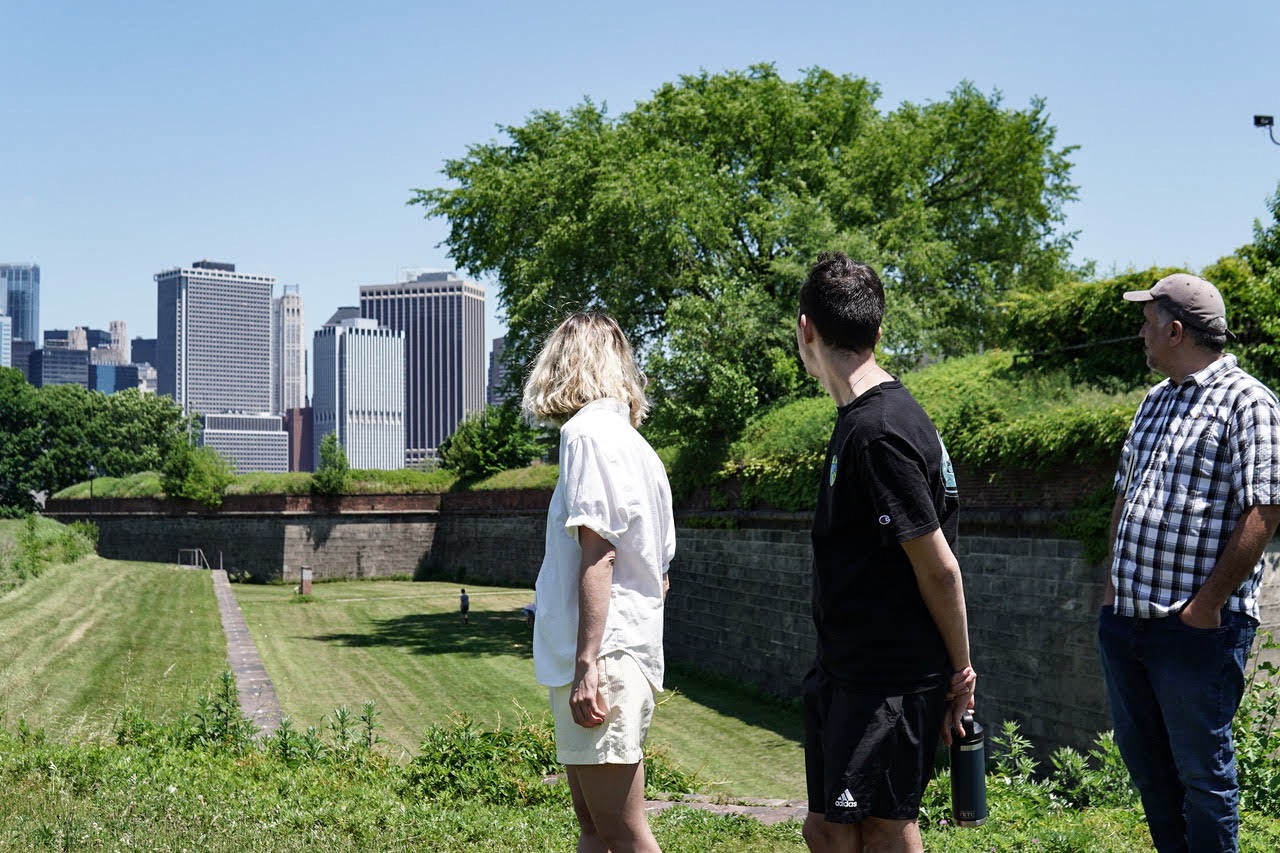
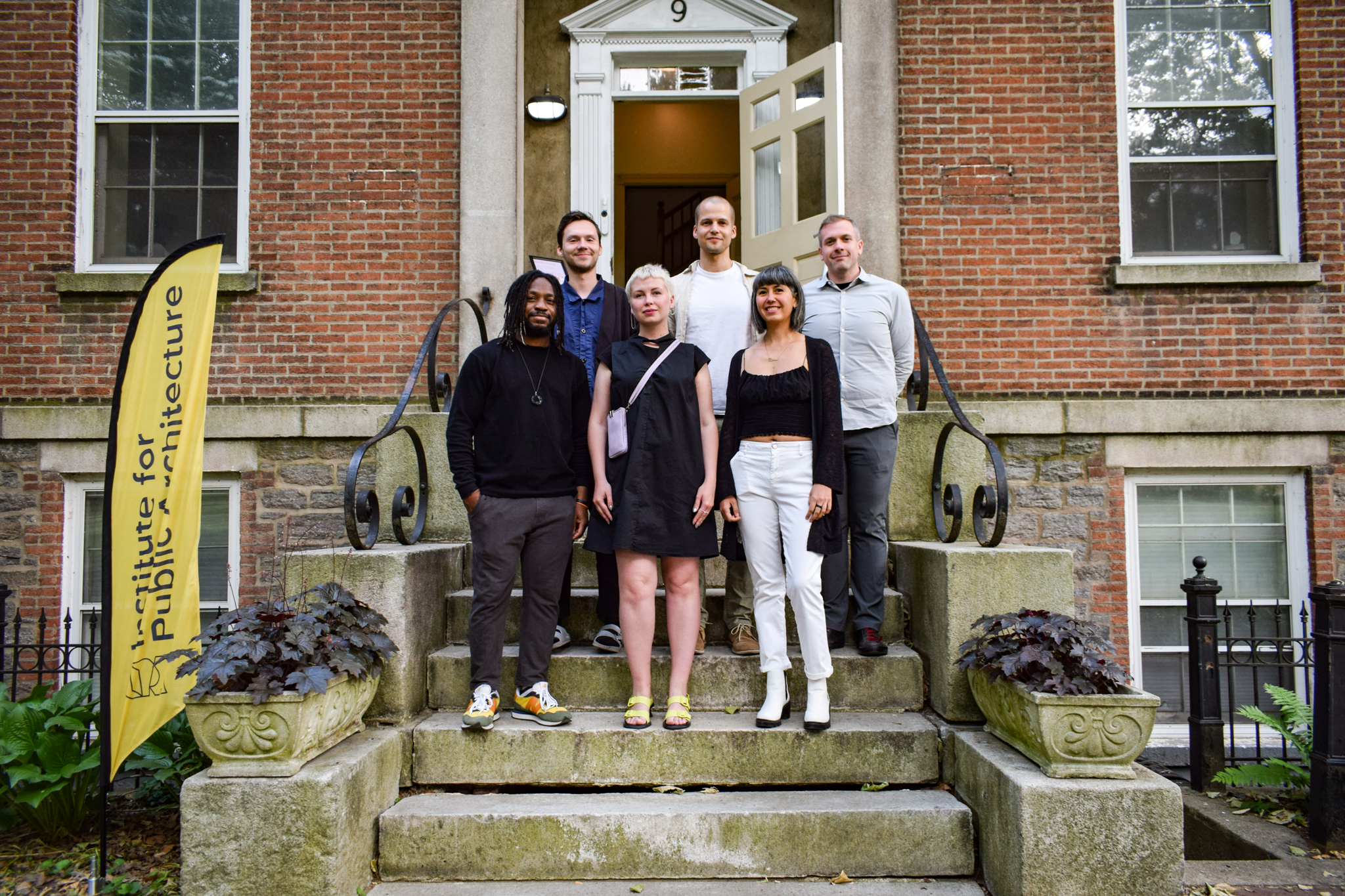
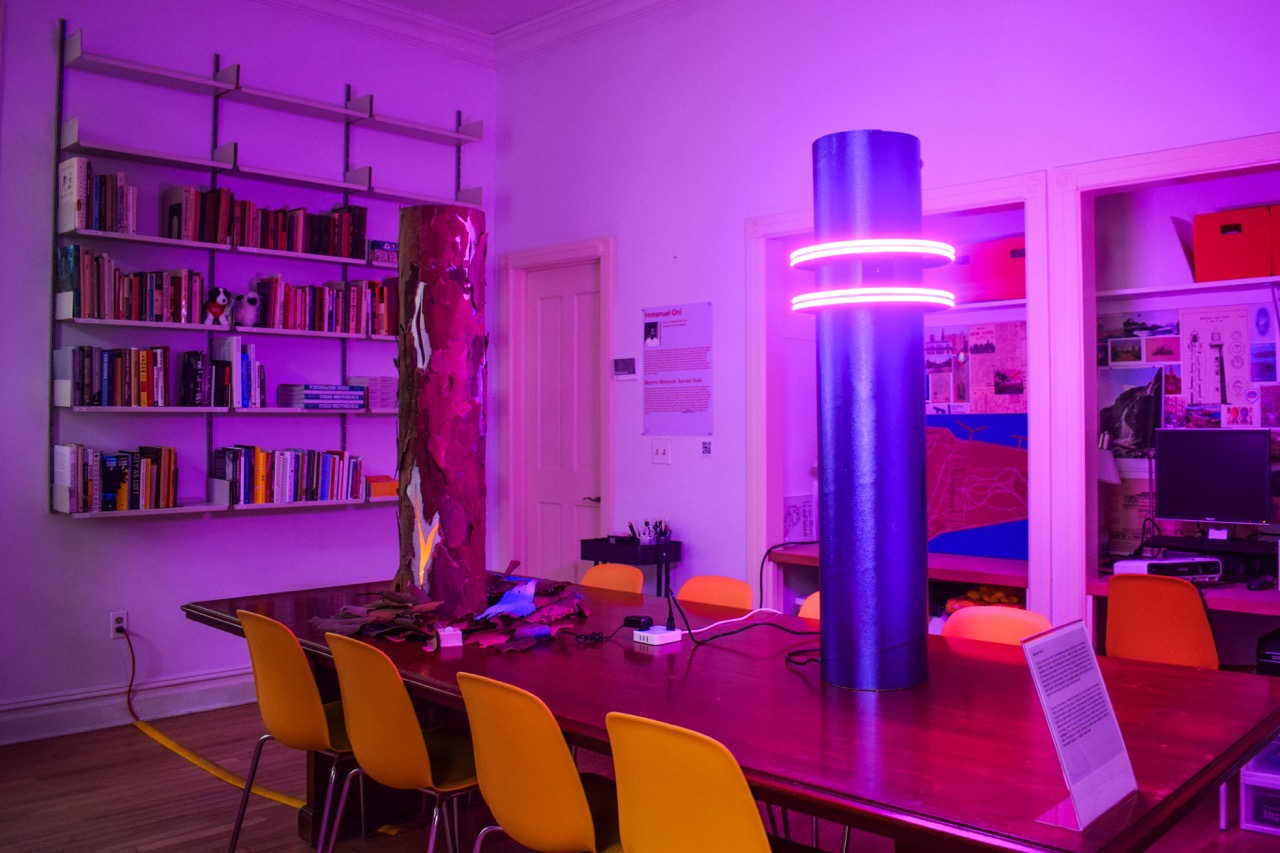
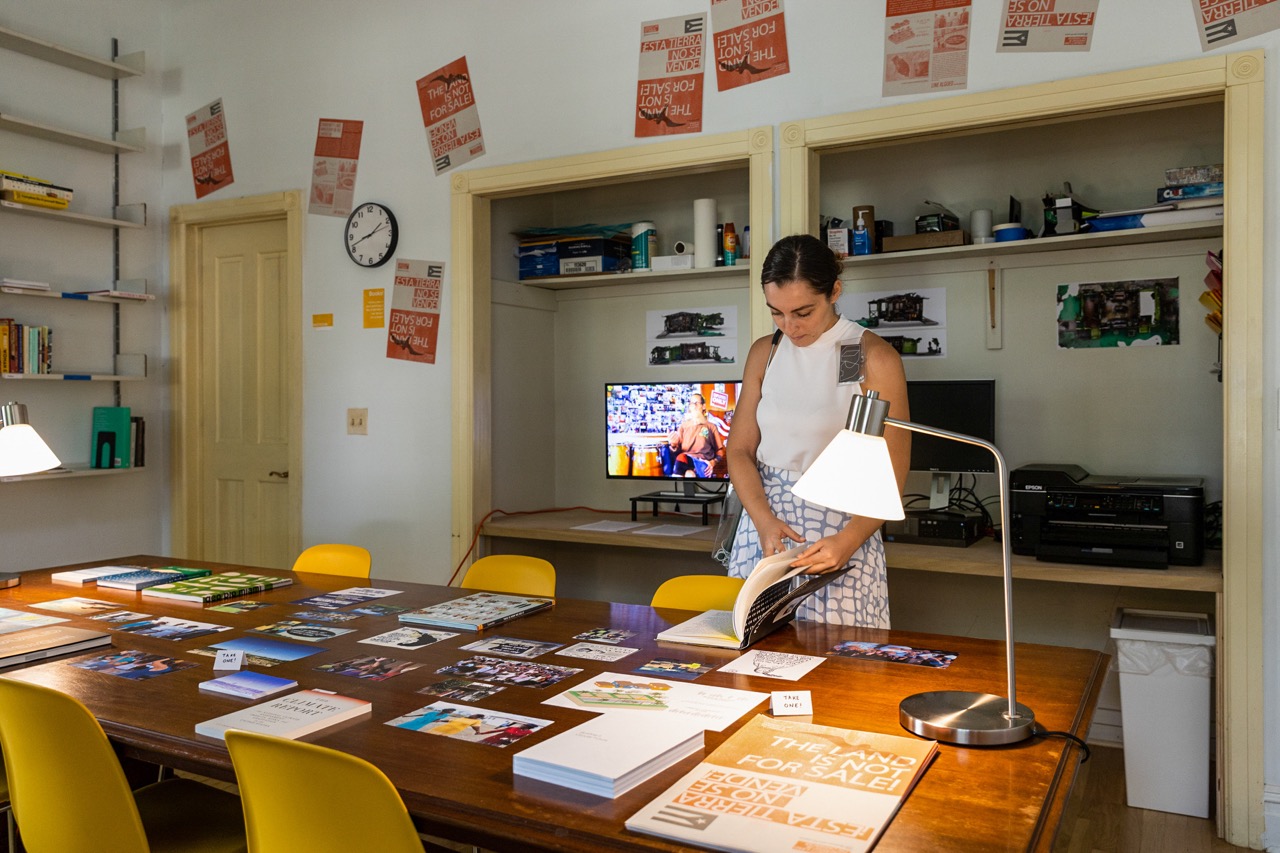
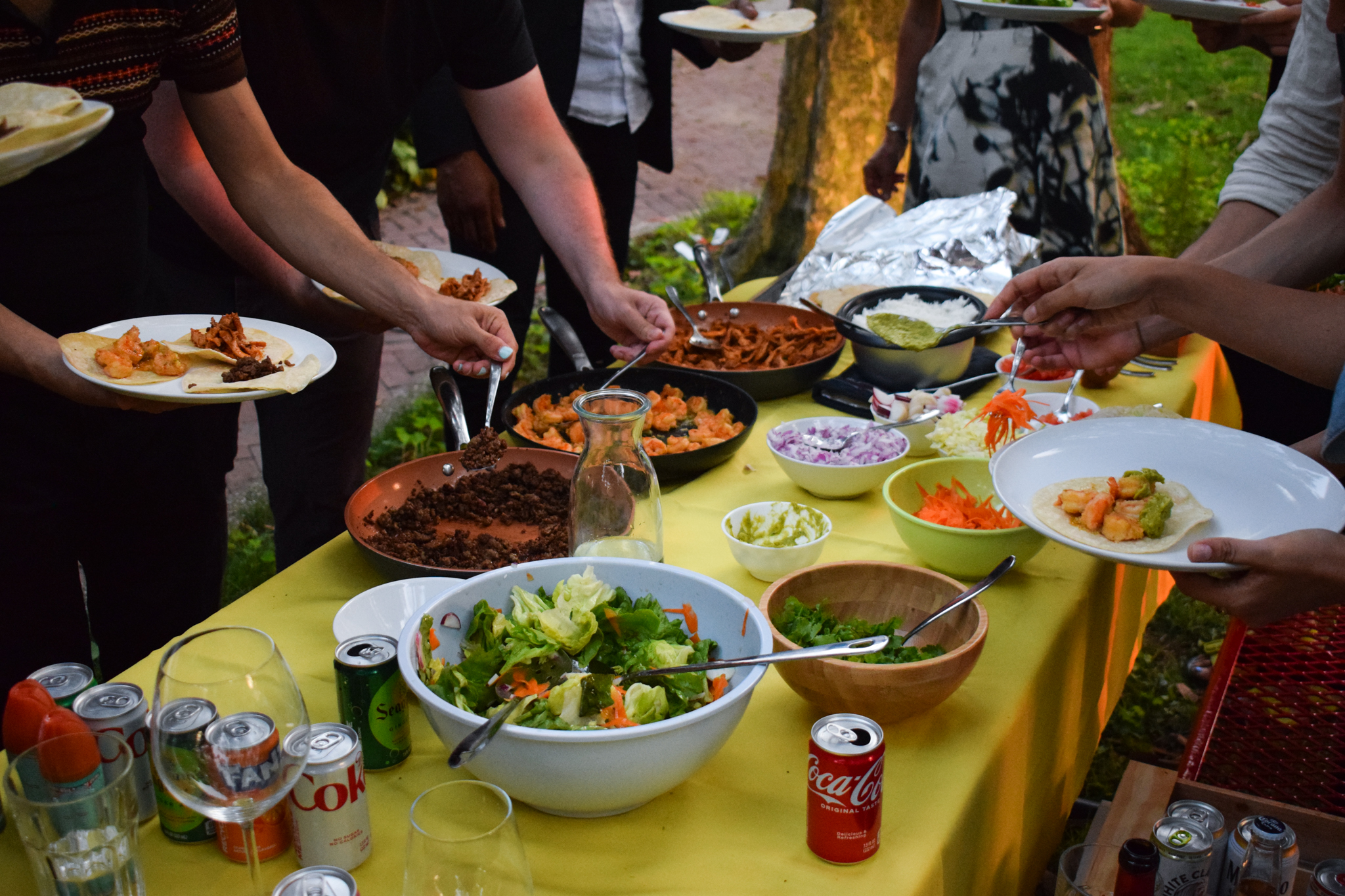
Practical Info
Duration
Applications for the eleven (11) week Summer and Fall Residency Programs are now open. Applicants must indicate to which program they are applying. Applicants may ask to be considered for both programs but will be selected for only one, depending on availability.
Summer Independent Projects Residency (11 weeks): June 1–August 17, 2024
Fall Independent Projects Residency (11 weeks): September 3–November 17, 2024
Summer Independent Projects Residency (11 weeks): June 1–August 17, 2024
Fall Independent Projects Residency (11 weeks): September 3–November 17, 2024
How to Apply
Applicants should submit the following documentation through the online form. Links to outside websites or files are not accepted and will not be considered in the review process.
Application Closed
- Statement of interest: Describe (1) how you would use your time at the Residency, (2) the relevance of New York City to your proposed project, and (3) how living/working on Governors Island may benefit your work. (maximum 500 words)
- Research/Design proposal: Summary of the research or design work to be developed during the Residency program. Work can be ongoing or a new endeavor. (maximum 500 words)
- References: Two references with full name and current email addresses. Recommendation letters are not required.
- Curriculum vitae. (PDF format, maximum 5MB)
- Work samples: Relevant research or work samples and/or portfolio. (PDF format, maximum 10MB)
Application Closed
Program Fee
The Program Fee is $3,750 for the Summer program and $3,000 for the Fall program per Fellow for the 11-week period. In addition to the Program Fee, a Room Fee ranging from $2,500–$3,750 is required. The Room Fee varies depending on the room the Fellow selects.
Fellows are encouraged to seek partial or full financial support from their institutions or other funding sources to offset the Program and Room Fees. Successful applicants must submit a non-refundable $1,000 deposit to secure a spot in the program. The rest of the fees are due in full on the first day of the respective program. Room selection occurs at the time of the payment of the full Room Fee, first-come, first-serve.
Fellows are encouraged to seek partial or full financial support from their institutions or other funding sources to offset the Program and Room Fees. Successful applicants must submit a non-refundable $1,000 deposit to secure a spot in the program. The rest of the fees are due in full on the first day of the respective program. Room selection occurs at the time of the payment of the full Room Fee, first-come, first-serve.
Program Fee Breakdown
The Program Fee includes:
The Room Fee includes:
- Registration
- A ‘visiting critic’ and final exhibition budget for each Fellow
- Cohort activities, including walking tours, museum visits and more
- An internal cohort workshop with invited guests
- An optional excursion at the conclusion of the Residency
- Occasional communal meals and dinner party expenses
- In-house program and facilities staff
The Room Fee includes:
- A private bedroom with individual climate control, supplied with a full (double) bed, pillows, sheets, towel and a full closet
- A personal desk and chair in the communal studio area with a lockable cabinet
- Shared bathrooms and in-house laundry with washer and dryer
- A fully-equipped shared kitchen and dining room with a standard oven, fridge, microwave, blender, and tableware
- Common workspaces and living areas
- Outdoor areas adjacent to the house with tables, chairs and open space
- High-speed internet within the Block House
- 24-hour Island security
- The first lunch, dinner and breakfast upon arrival to the Block House
- Unlimited ferry rides between Governors Island and Manhattan
Program Fee Waivers
We understand that the cost of the Residency might be a barrier to entry for some applicants. The IPA offers a limited number of need-based partial Program Fee Waivers (PFW). If you are interested in applying for a PFW, indicate this on the application. Requests must be submitted through the application and will not be considered after the general deadline.
The aim of the PFW is to address systemic barriers that some applicants may face. Applicants may apply for a PFW for any reason. Any information submitted will remain confidential for the use of the IPA in determining applicant’s need for financial support. Successful applicants will be informed if they have been awarded a partial PFW when they are notified of their acceptance to the Residency.
PFWs are evaluated separately from the rest of the application and submitting a request will not negatively affect an application. Please note we are currently unable to waive the Room Fee due to high facility costs.
The aim of the PFW is to address systemic barriers that some applicants may face. Applicants may apply for a PFW for any reason. Any information submitted will remain confidential for the use of the IPA in determining applicant’s need for financial support. Successful applicants will be informed if they have been awarded a partial PFW when they are notified of their acceptance to the Residency.
PFWs are evaluated separately from the rest of the application and submitting a request will not negatively affect an application. Please note we are currently unable to waive the Room Fee due to high facility costs.
Program Conclusion
At the end of the Residency, Fellows’ work will be exhibited at the Block House and submitted to the IPA for publication on digital channels and the website. Fellows should expect to receive feedback from invited guests. As an independent program, no official qualifications or diplomas are awarded.
Vehicle Access
Governors Island is a predominantly car-free space, with very limited vehicle access. Fellows will not be able to bring or use a vehicle on the Island during the Residency period. There are no stores on Governors Island; all groceries and other items must be purchased on the mainland and brought to the Island. Hand carts are available for Fellow use.
Notes
Upon request, the IPA can supply successful applicants with documentation of their invitation to participate in the Residency that may be used to apply for a Visa, grants or other related matters. The IPA is unable to directly assist with or provide Visas to international applicants. Please consult the Department of State’s website for more information on Visa requirements.
Materials submitted for and resulting from the Residency may be retained for use by the IPA for exhibition, publication, and promotional purposes, without compensation. The Fellow will retain full copyright of all materials resulting from the Residency unless otherwise stated. The IPA will not be held liable for any damages, errors or omissions.
By participating in the program, Fellows agree to be photographed and/or filmed and give permission to use their likeness in promotional and/or marketing materials.
At this time, the Block House is unable to accommodate Fellows’ families, domestic partners, or pets.
Materials submitted for and resulting from the Residency may be retained for use by the IPA for exhibition, publication, and promotional purposes, without compensation. The Fellow will retain full copyright of all materials resulting from the Residency unless otherwise stated. The IPA will not be held liable for any damages, errors or omissions.
By participating in the program, Fellows agree to be photographed and/or filmed and give permission to use their likeness in promotional and/or marketing materials.
At this time, the Block House is unable to accommodate Fellows’ families, domestic partners, or pets.
Inquries
Island Life
The Block House
Fellows will live and work in a landmarked Greek Revival building designed in the 1840s by architect Martin E. Thompson. During the decades when Governors Island was a U.S. military base, the Block House served as a General’s headquarters, Officers’ quarters and hospital. The Block House contributes to the vibrant, culturally diverse and verdant Nolan Park and is one of the oldest structures on the Island.
The IPA has restored and equipped the Block House to support the Residency and create a productive environment for living and working. The Block House enjoys proximity to more than twenty arts, cultural, educational, and environmental nonprofit organizations-in-residence on the Island.
︎︎︎ Learn more about the Block House
The IPA has restored and equipped the Block House to support the Residency and create a productive environment for living and working. The Block House enjoys proximity to more than twenty arts, cultural, educational, and environmental nonprofit organizations-in-residence on the Island.
︎︎︎ Learn more about the Block House
Governors Island
Governors Island is a 172-acre Island in the heart of New York Harbor. Just minutes from Lower Manhattan and the Brooklyn waterfront by ferry, the Island is a popular destination open to visitors year-round. An award-winning park complements the Island’s historic buildings, educational and cultural facilities, rich arts and culture programs, and 22-acre National Monument. The Island features expansive open space, playgrounds, several dining and food-truck options, historic sites, trails, bicycle rentals, an urban farm, athletic fields, birdwatching, and sweeping views of the New York and New Jersey skylines.
The Block House is currently the only building on Governors Island that supports short-term overnight accommodations for cultural and academic purposes. As such, Fellows will enjoy exclusive access to the Island beyond its regular operating hours. Fellows are encouraged to take advantage of the many events, exhibitions, lectures, sports competitions, workshops and festivals throughout the season on the Island (some as close as the Block House’s front yard).
Current tenants include the Lower Manhattan Cultural Council, Urban Assembly New York Harbor School, Billion Oyster Project, Beam Center, QC New York Spa, Earth Matter and many more seasonal organizations-in-residence. You can see a full list here.
The Block House is currently the only building on Governors Island that supports short-term overnight accommodations for cultural and academic purposes. As such, Fellows will enjoy exclusive access to the Island beyond its regular operating hours. Fellows are encouraged to take advantage of the many events, exhibitions, lectures, sports competitions, workshops and festivals throughout the season on the Island (some as close as the Block House’s front yard).
Current tenants include the Lower Manhattan Cultural Council, Urban Assembly New York Harbor School, Billion Oyster Project, Beam Center, QC New York Spa, Earth Matter and many more seasonal organizations-in-residence. You can see a full list here.
History
The Island was referred to as Paggank (Nut Island) by the indigenous Lenape of the Manhattan region, after its plentiful hickory, oak and chestnut trees. With the arrival of the Dutch West India Company in 1624, the Island was confiscated and renamed “Noten Eylandt” and a small fort and sawmill was constructed. In 1664 the English captured New Amsterdam and took Nutten Island (the British mispronunciation of the Island) transforming it into a fort and garrison, eventually renaming it Governors Island and reserving it for the “benefit and accommodation of His Majesty’s Governors.”
After the American Revolution, the State of New York took control of the Island as part of an effort to fortify coastal defenses and constructed Fort Jay. In 1800, New York transferred the Island to the US government for military use. In 1966, the Island was transferred to the US Coast Guard, becoming a self-contained residential community with a population of over 3,000. As a cost cutting measure, the Coast Guard closed its facilities and relocated all personnel in 1996. In 2003, the Island was transferred back to the City and State of New York, with a provision that it be used for the public benefit. Today three entities act as stewards and advocates for the Island: The Trust for Governors Island, the National Park Service and the Friends of Governors Island.
After the American Revolution, the State of New York took control of the Island as part of an effort to fortify coastal defenses and constructed Fort Jay. In 1800, New York transferred the Island to the US government for military use. In 1966, the Island was transferred to the US Coast Guard, becoming a self-contained residential community with a population of over 3,000. As a cost cutting measure, the Coast Guard closed its facilities and relocated all personnel in 1996. In 2003, the Island was transferred back to the City and State of New York, with a provision that it be used for the public benefit. Today three entities act as stewards and advocates for the Island: The Trust for Governors Island, the National Park Service and the Friends of Governors Island.
Previous Programs
![]()
2023 Fall Residency:
Independent Projects
This nine-week Residency brought five Fellows to the Block House. Fellows represented a range of disciplines including art, architecture, urban design, environmental design, and socially engaged practice.
︎︎︎ Learn More
![]()
2023 Summer Residency: Independent Projects
Six Fellows lived and worked at the Block House for a period of 11 weeks. Fellows represented a range of disciplines including art, architecture, urban design, illustration and history & design education. Fellows participated in a series of public events, a workshop and a series of cohort activities throughout the Summer.
︎︎︎ Learn More
![]()
2022 Summer Residency: Independent Projects
The inaugural Block House Residency had four Fellows living and working on Governors Island. Fellows worked on independent projects and participated in a series of Open [Block] House events throughout the summer to share their work with the public, culminating in a final presentation and public exhibition.
︎︎︎ Learn More
Hear from our Fellows:

Immanuel Oni
2023 Fellow
“As a local creative, it was really beneficial to live on the island and get a different perspective from the city. It also challenged me to focus on a process out of my typical framework and consider other processes/spatial narratives within a natural landscape. I'm also grateful for the flexibility to have taught briefly and in doing so actually helped me finalize a secondary focus for my project, indigenous stories. Though challenging to commute to multiple parts of the city due to ongoing projects/research related to residency interests, I had the flexibility to explore themes and design interests at multiple scales that benefited my overall design deliverables. l feel I wouldn't have made this kind of progress without being in an environment surrounded by other creatives, space, and an energy unique only to the Block House.”

Kevin Hofmann
2023 Fellow
“Anyone looking for time and space to advance ongoing research or consider new questions would be well-served by a stay on Governors Island, as I was privileged to experience for eleven transformative weeks. Participating in a fellowship with access to an endlessly fascinating and edifying city is balanced by day-to-day life on the Island, from participating in the busiest weekend festivals to quiet runs on weekday mornings. The IPA's unique presence among Island stewards and tenants facilitates access to experiences and knowledge that led me to significant personal and philosophical growth. The best programming involved convening with friends of the IPA at dinners, Open [Block] House events, and off-island adventures where friendships were forged by sharing ideas and experiences. Above all, the most important aspect of this experience involved sharing creative works in progress and inviting new forms of dialog focused on process, not outcome.”

Line Algoed
2022 Fellow
“Governors Island and the Block House provide an ideal setting for a highly productive residency. Its peace and quiet, its natural surroundings, even its eeriness, it is an inspiring and wonderful place to work. I used the IPA Summer Residency to progress on the writing of articles for my PhD in Human Geography on land tenure issues in the Caribbean. I had been working on my PhD for 5 years, finished all my fieldwork, but I was quite behind on the writing, thinking that I would need to apply for an extension of my PhD funding. However, when I arrived at the Block House, everything was in place for me to focus fully on my work. I finished more writing in these three and a half months than I did in years. Suddenly, the writing blockages that had been frustrating me were gone. Distance and difference are the secret to creativity, it is said. It helped to be taken out of my daily context, and to spend time away from academia, surrounded by visionary, creative, problem-solving people in arts and architecture.
Governors Island is a place of beauty and creativity. The many other residencies happening on the island, most of them artistic, create a stimulating setting. The weekends are bustling with activity. During the week, the Island is quieter. Every morning I would take a walk, early, to Outlook Hill, and on many of these walks I wouldn’t see any other people, just birds and bees and squirrels, in the middle of New York Harbor. The Island’s nature would baffle me. Often on those walks, I would go down the slides by myself, remembering what it was like to be a bewildered 5 years old. The times that I did see others I had great uplifting chats with people who love the island and take an early ferry for walks or bike rides, or with the gardening or maintenance teams. Each time I left the island for groceries or other NYC activities, I would feel happy to come back on the ferry, chat with the cheerful ferry staff, and then come home to the Block House and my fantastic housemates. Many evenings we spent on the stoops of the Block House, talking about the island, our work and life. In more ways than is possible to describe, these conversations have made their way into my work. The IPA has made this an incredible unforgettable experience, and I enjoyed every second!”
Governors Island is a place of beauty and creativity. The many other residencies happening on the island, most of them artistic, create a stimulating setting. The weekends are bustling with activity. During the week, the Island is quieter. Every morning I would take a walk, early, to Outlook Hill, and on many of these walks I wouldn’t see any other people, just birds and bees and squirrels, in the middle of New York Harbor. The Island’s nature would baffle me. Often on those walks, I would go down the slides by myself, remembering what it was like to be a bewildered 5 years old. The times that I did see others I had great uplifting chats with people who love the island and take an early ferry for walks or bike rides, or with the gardening or maintenance teams. Each time I left the island for groceries or other NYC activities, I would feel happy to come back on the ferry, chat with the cheerful ferry staff, and then come home to the Block House and my fantastic housemates. Many evenings we spent on the stoops of the Block House, talking about the island, our work and life. In more ways than is possible to describe, these conversations have made their way into my work. The IPA has made this an incredible unforgettable experience, and I enjoyed every second!”
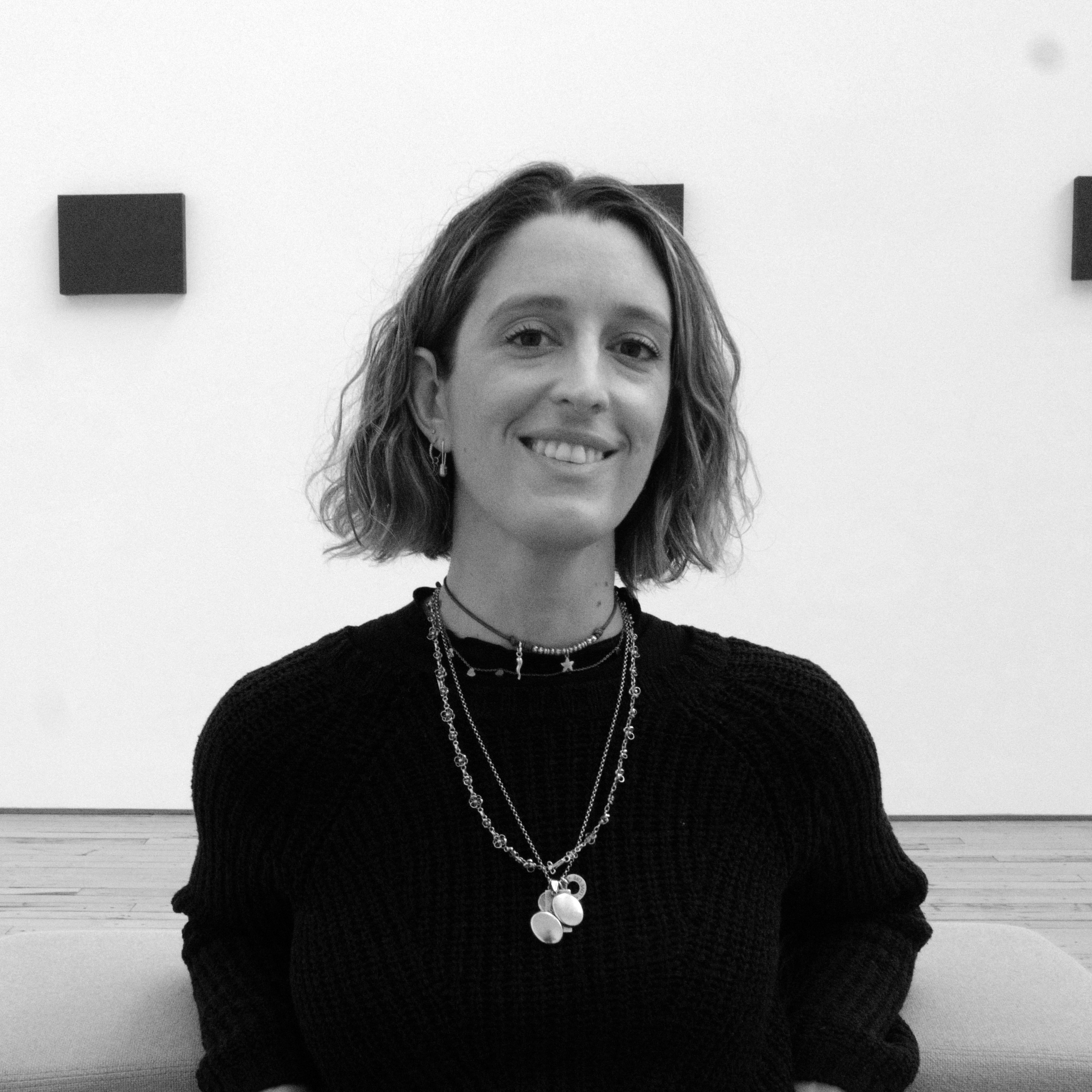
Valentina Angelucci
2022 Fellow
“There are few places that one can spend an extended period of time and still feel a sense of awe and wonder just by being there. This is what it was like to live in the Block House on Governors Island. Everyday waking up in our own park, and everynight going to sleep on an island that we share with only six other people and the best view of lower Manhattan. We often felt like we needed to pinch ourselves at the privilege. Life on Governors Island provided a very special and sacred time to write, think, draw and make, with a group of like-minded, intelligent, creative and kind people. It provided us with the freedom and support to bring our ideas to life!
As Fellows of the IPA we had the opportunity and platform to network with people who are experts in their field, and learn from the cumulative knowledge and experience of the IPA Board. Along with the work we were there to do, we also got to enjoy many other fun organized activities over the residency such as dinner parties and bike tours. One of the things I cherish most about the experience was living with great housemates, my fellow Fellows. As a combination of people we were very good together and have become good friends, since working together, eating together, taking care of each other, and of course, book and wine shopping! Our daily conversations at sunset on the stoops were one of my favorite times of day. We often cooked and ate together, and took evening strolls around the island. We also got to build connections with other tenants of the Island, such as gardening with Savona from the West Harlem Art Fund, and tours by the Friends of Governors Island and the National Park Service. This community welcomed us, and it felt great to be a part of them. This was one of those once in a lifetime experiences that I will cherish for many years to come. This sabbatical away from the real world to work on our own projects was refreshing and restorative on a personal level, but most importantly I feel like I truly got in touch with my own way of making and designing, and is invaluable in itself!”
Application Closed
As Fellows of the IPA we had the opportunity and platform to network with people who are experts in their field, and learn from the cumulative knowledge and experience of the IPA Board. Along with the work we were there to do, we also got to enjoy many other fun organized activities over the residency such as dinner parties and bike tours. One of the things I cherish most about the experience was living with great housemates, my fellow Fellows. As a combination of people we were very good together and have become good friends, since working together, eating together, taking care of each other, and of course, book and wine shopping! Our daily conversations at sunset on the stoops were one of my favorite times of day. We often cooked and ate together, and took evening strolls around the island. We also got to build connections with other tenants of the Island, such as gardening with Savona from the West Harlem Art Fund, and tours by the Friends of Governors Island and the National Park Service. This community welcomed us, and it felt great to be a part of them. This was one of those once in a lifetime experiences that I will cherish for many years to come. This sabbatical away from the real world to work on our own projects was refreshing and restorative on a personal level, but most importantly I feel like I truly got in touch with my own way of making and designing, and is invaluable in itself!”
Application Closed


